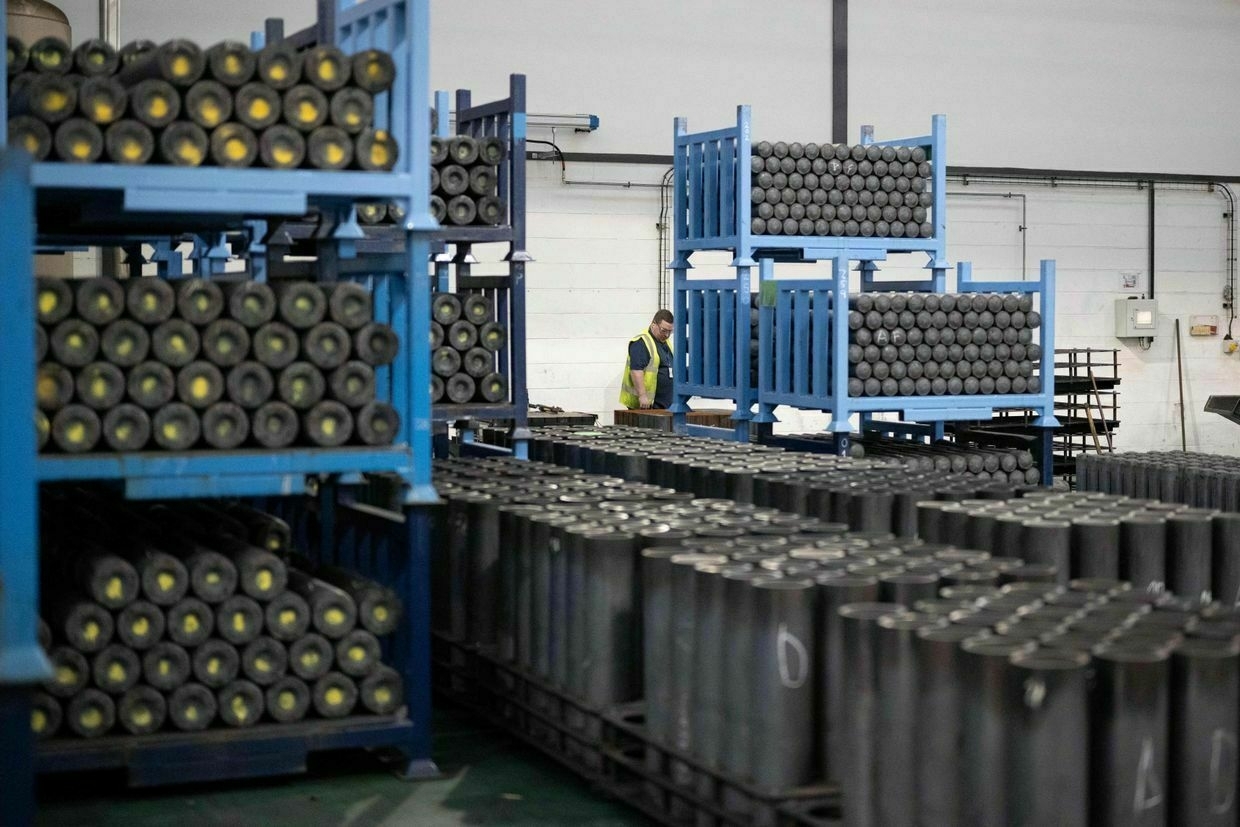-
UK to buy Ukraine weapons with frozen Russian asset proceeds
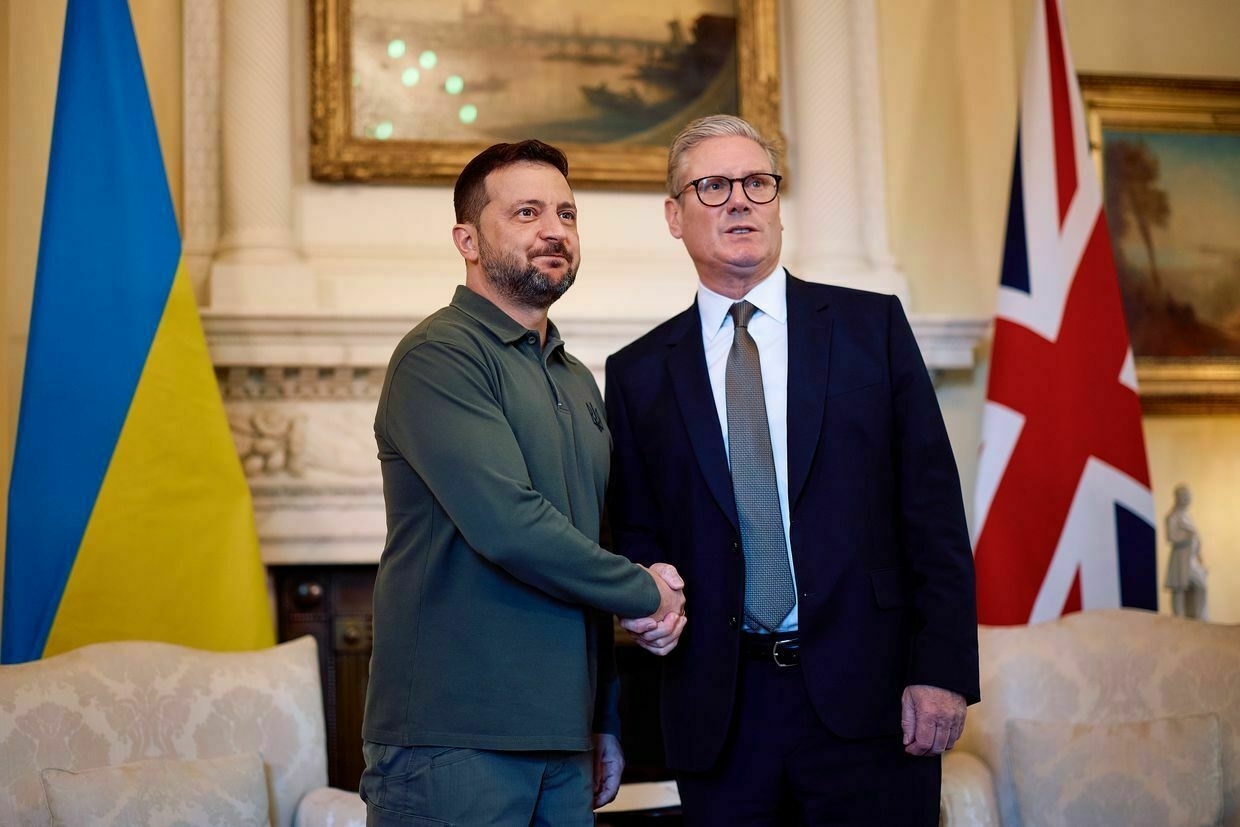
The U.K. has used interest generated from frozen Russian assets to purchase weapons for Ukraine, buying 350 air defense missiles worth £70 million ($87 million), The Guardian reported on June 25.
The move represents the U.K.’s first direct use of Russia-linked funds to buy weaponry for Kyiv.
The weapons purchase was funded through Britain’s Extraordinary Revenue Acceleration (ERA) scheme, which captures interest from frozen Russian central bank assets.
According to The Guardian, the missiles, originally designed as air-to-air weapons, were converted by RAF engineers and MBDA UK in just three months to fire from ground-based systems.
Five additional Raven launcher systems will accompany the missiles to Ukraine, bringing the total to 13.
U.K. Prime Minister Keir Starmer announced the package ahead of NATO’s annual summit.
"Russia, not Ukraine, should pay the price for Putin’s barbaric and illegal war," he said.
The package is part of Britain’s largest-ever annual military commitment to Ukraine of £4.5 billion ($5.6 billion), the Guardian reports.
It follows a £1.6 billion ($2.0 billion) deal in March for over 5,000 air defense missiles and a separate £350 million ($436 million) investment to increase drone deliveries tenfold.
The announcement comes as Starmer and President Volodymyr Zelensky agreed to work closely on military production between the UK and Ukraine. On June 24, Ukraine’s Defense Minister Rustem Umerov announced that Britain will finance Ukrainian-designed drones manufactured in the UK.
European countries cannot fully confiscate the frozen Russian assets due to concerns about international law and financial stability. The European Central Bank warned that such a move could undermine confidence in the euro as a reserve currency, since most of the assets are euro-denominated.Instead, only the interest generated from these funds is currently being used to back a $50 billion loan package for Ukraine, while the principal amount of 300 billion euros ($348 billion) remains frozen but not seized.
In June, Ukraine received another 1 billion euros ($1.1 billion) from the EU as part of the G7 loan program backed by frozen Russian assets, Prime Minister Denys Shmyhal announced.
-
Trump says Zelensky is a 'nice guy,' will discuss 'his difficulties' during meeting at NATO summit
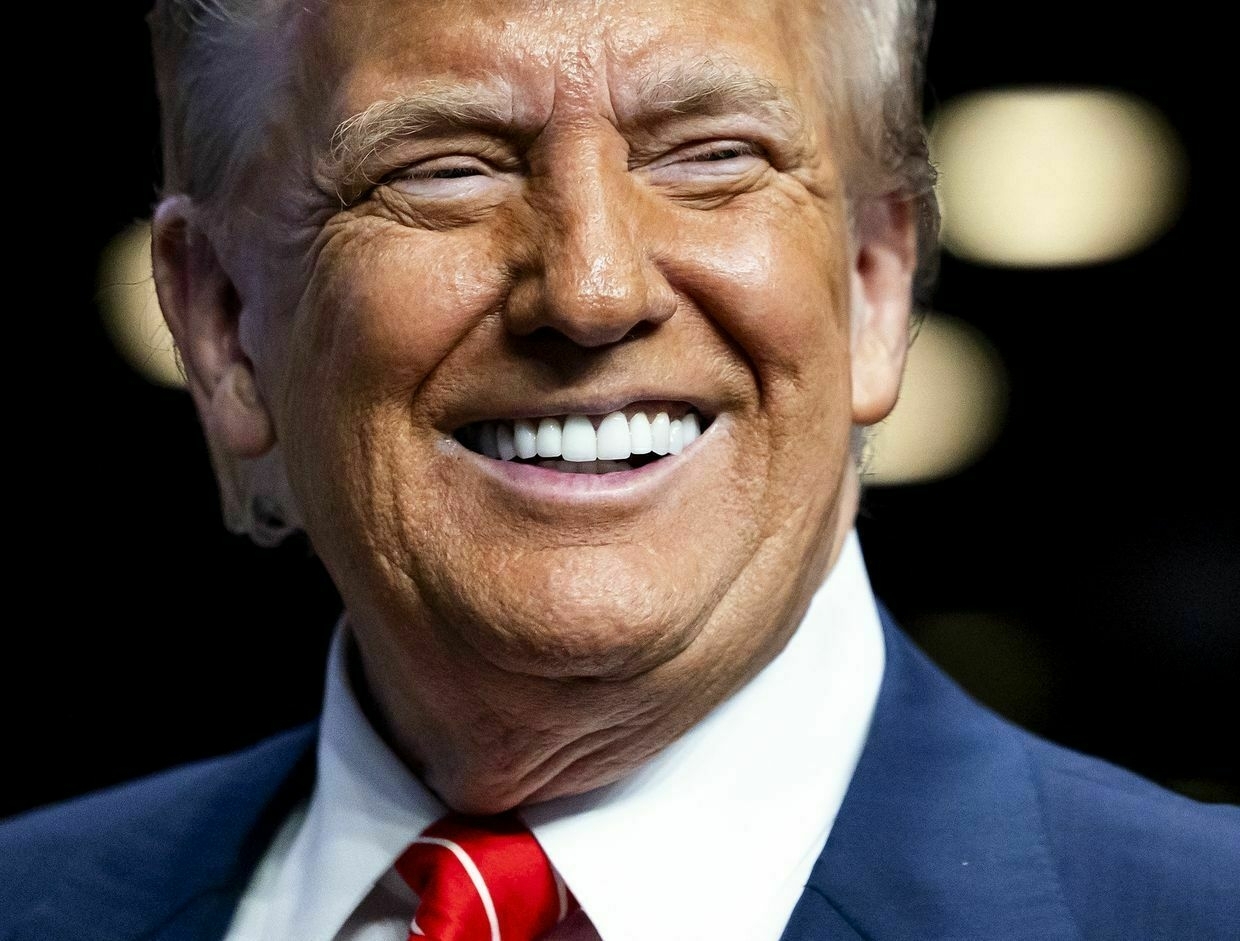
U.S. President Donald Trump has said President Volodymyr Zelensky is a “nice guy” ahead of a meeting at NATO summit in The Hague on June 25, saying they will be “discussing his difficulties."
The White House confirmed the meeting on June 24 but did not release further details. According to a diplomatic source cited by AFP, the talks between Zelensky and Trump were scheduled for early afternoon, with both sides finalizing the agenda.
The two leaders are expected to discuss Ukraine’s planned purchase of a new defense package, including air defense systems, as well as additional sanctions on Russia and an international price cap on Russian oil.
Speaking at a press briefing at The Hague on June 25, Trump was asked by a reporter what he would be discussing during the meeting with Zelensky.
“Obviously we’ll be discussing his difficulties, he’s got a little difficulty,” Trump replied.
“Zelensky is a nice guy, I’m going to meet him today. I don’t know, I assume we’re going to be discussing Ukraine. It seems the most likely,” he added.
Trump did not elaborate on what he meant by “difficulties” but the NATO summit comes at a time when U.S. support for Kyiv is waning, and just a week after Russian President Vladimir Putin declared “all of Ukraine is ours."
This will be the first meeting between Zelensky and Trump since April, when they spoke briefly on the sidelines of Pope Francis' funeral in Rome.
A planned discussion at the G7 summit earlier this month fell through after both leaders left the event early, Trump due to escalating tensions in the Middle East, and Zelensky in response to drone and missile attack on Kyiv.
Upon arriving in The Hague on Monday, Andriy Yermak, head of the Ukrainian presidential office, said he held “substantive” talks with U.S. Secretary of State Marco Rubio to prepare for the Zelensky-Trump meeting, including its structure and key topics.
Zelensky is also scheduled to meet with NATO Secretary-General Mark Rutte and European Commission President Ursula von der Leyen during the summit.
In a recent interview with Sky News, Zelensky expressed uncertainty about Trump’s ties to Putin but said he believes Trump understands that Ukraine is a U.S. ally and that “the real existential enemy of America is Russia."
Investigation: How Russia prepares its strategic missile plant for ‘eternal war’Key findings: * Despite international sanctions, Russia’s strategic missile plant was able to import complex machinery to dramatically increase missile production. * The Kyiv Independent has identified the equipment supplied to the plant, as well as the supply chains, mostly from China. * We located the plant’s new premises, built to house theThe Kyiv IndependentAlisa Yurchenko
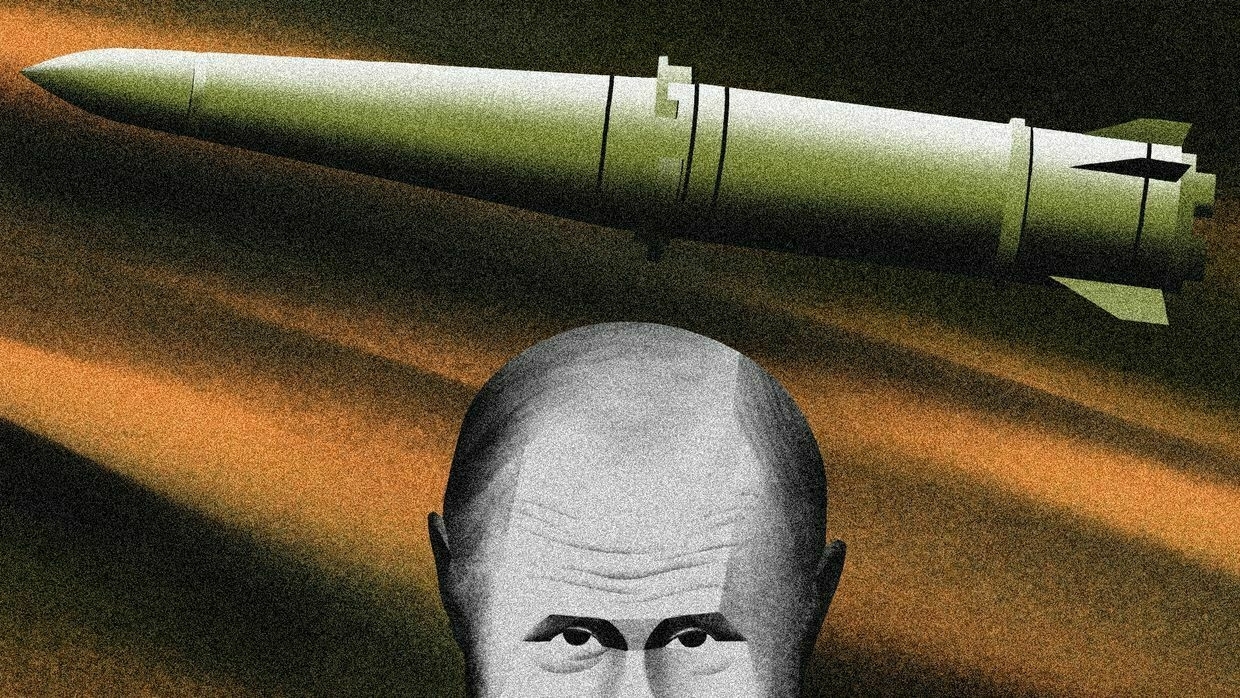
-
Little-known casualty of the war — Ukraine's reforms
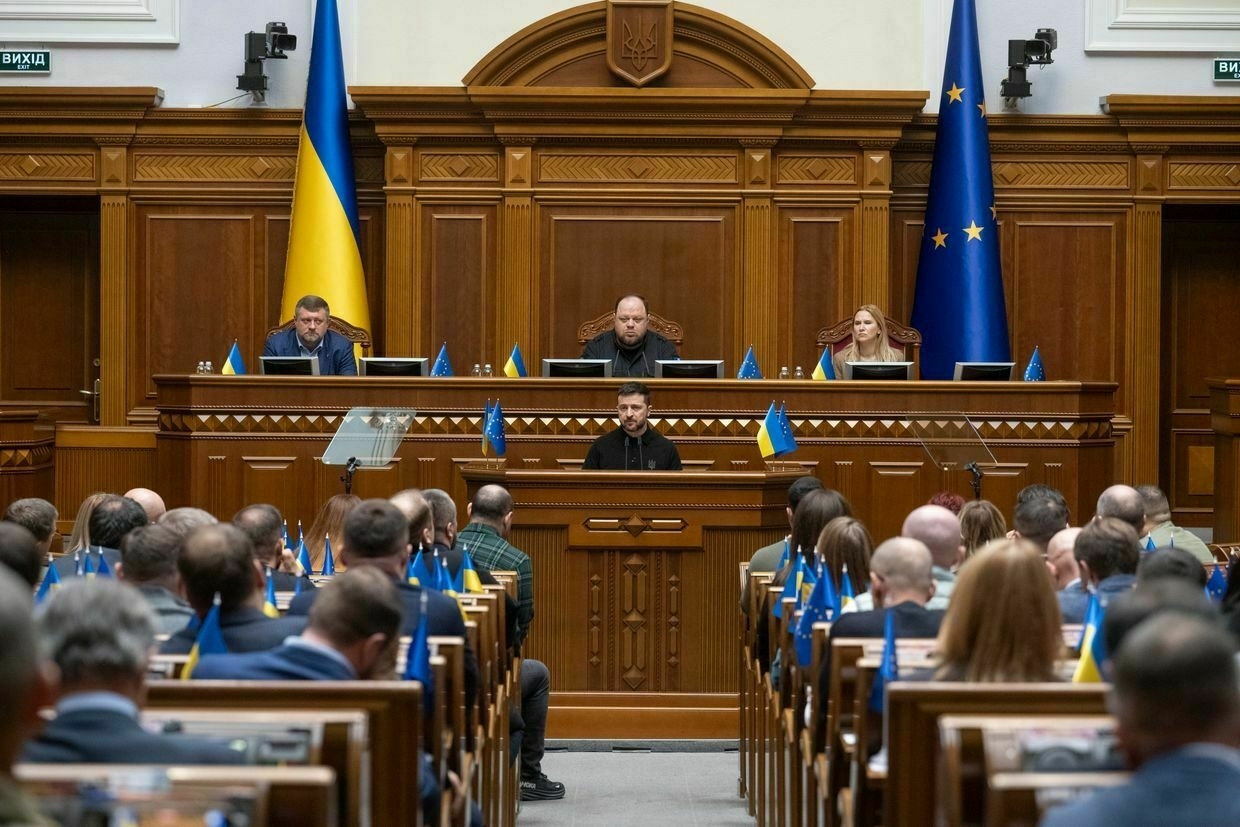
Russia’s all-out war has accelerated Ukraine’s push to join the European Union and NATO, as well as its dependency on Western loans and aid.
Before, these things would have been heavily preconditioned on Ukraine implementing crucial reforms.
However, the war has also eased the pressure on Kyiv to carry out reforms — stalling the country’s progress in advancing anti-corruption programs and reforming law enforcement.
The key reason is that Ukraine’s formerly demanding Western backers have preferred not to set strict conditions for a country at war.
U.S. President Donald Trump’s administration has shown little interest in Ukraine, and even less interest in the country’s domestic reforms.
The European Union has also been lenient on law enforcement and anti-corruption reforms in Ukraine, several members of Ukraine’s parliament and civil society told the Kyiv Independent.
The sources said that this soft-touch approach has backfired, leaving Ukrainians with either half-baked or failed reforms in crucial sectors.
Some sources spoke on condition of anonymity due to the sensitivity of the issue: they were raising concerns about the lack of pressure on their country to implement reforms during war.
Ukraine’s anti-corruption bureau makes progress yet doesn’t take on top presidential alliesAs Ukraine’s civil society and the country’s Western partners call on the authorities to fight corruption amid Russia’s full-scale invasion, the National Anti-Corruption Bureau of Ukraine (NABU) is showing mixed results. A year has passed since Semen Kryvonos became the head of the NABU in March 2023, replacing the bureau’The Kyiv IndependentOleg Sukhov
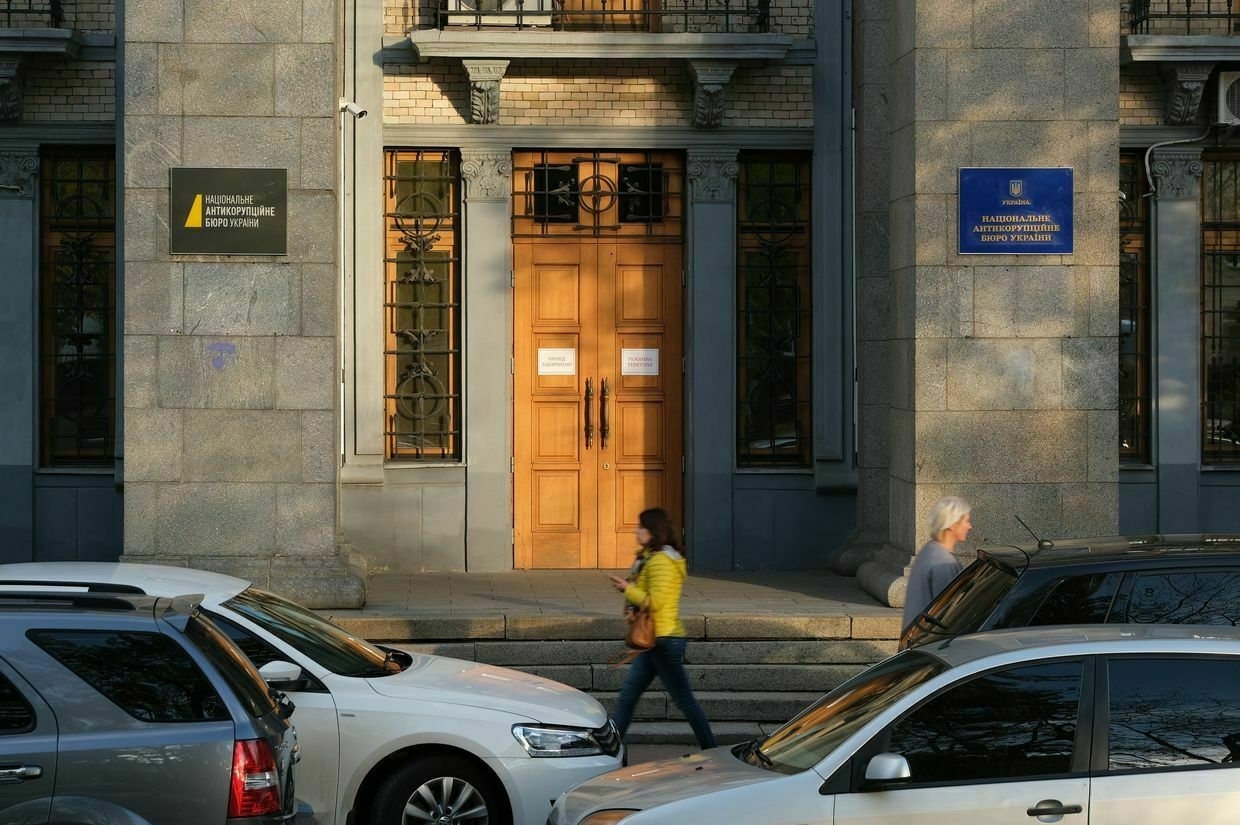
All eyes on accessionThe West’s leverage over reforms in Ukraine traditionally stems from financial assistance given to Kyiv by the U.S., the EU, and the International Monetary Fund (IMF), as well as from Ukraine’s aspirations to join the EU and the conditions it must meet to do so.
The European Union granted Ukraine candidate status in 2022 and approved launching accession talks with Kyiv in 2024 despite several botched reforms. The decision was mainly seen as a political move in support of the country as it struggles to withstand Russia’s ongoing onslaught.
Still, anti-corruption activists and experts hope that Ukraine’s European integration will be a push for a number of critical reforms.
A European official leading the process, who spoke on condition of anonymity, admitted to the Kyiv Independent that the EU had been soft on Ukraine before the EU accession negotiations had been approved.
The source argued, though, that the strategy would change radically due to the European Union’s stronger leverage that comes with accession talks. The EU will closely track Ukraine’s progress on reforms and will agree to Kyiv’s accession to the bloc only if there is meaningful and fundamental change, according to the source.
The accession talks formally began in June 2024. However, they have proceeded slowly and have been derailed by political obstruction from within the Union.
Olha Stefanishyna, Ukraine’s deputy prime minister for European integration, denied the accusations that the country’s authorities are sabotaging reforms needed for EU accession.
The EU and U.S. embassies, as well as the International Monetary Fund and Ukraine’s President’s Office, did not respond to requests for comment.
The West’s demands have played a key role in driving critical Ukrainian reforms that kicked off after the pro-Western 2014 EuroMaidan Revolution, which ousted a pro-Russian president and his corrupt government.
Specifically, the U.S. and EU helped Ukraine to set up and develop anti-corruption institutions, including the National Anti-Corruption Bureau of Ukraine (NABU), the Special Anti-Corruption Prosecutor’s Office (SAPO), the High Anti-Corruption Court, and the National Agency for Corruption Prevention (NACP).
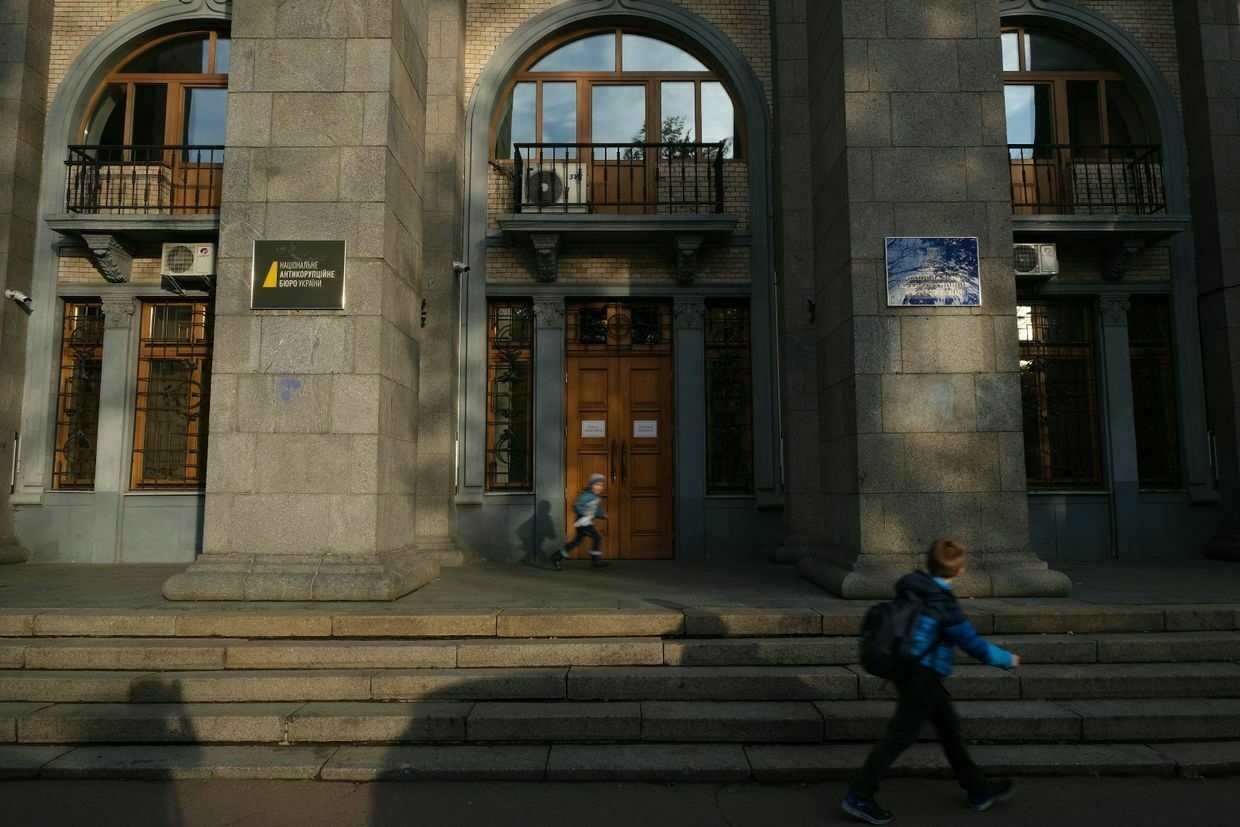
Children walk past the offices of the National Anti-Corruption Bureau of Ukraine (NABU) in Kyiv, Ukraine, on Oct. 1, 2019. (Sean Gallup / Getty Images) When the EU approved Ukraine’s candidate bid in 2022, its accession conditions also played a major role in reforms, Kateryna Butko, head of anti-corruption watchdog AutoMaidan, told the Kyiv Independent. Specifically, the EU urged Ukraine to speed up the selection of a new chief anti-corruption prosecutor and fill in Constitutional Court jobs with the participation of international experts, she said.
Ukraine’s judicial reform relaunch shows mixed results so farIn late 2023, Ukraine finally re-launched the process of vetting judges as part of a long anticipated judicial reform – a key condition for Ukraine’s accession to the European Union. Four months later, the results are mixed. On the one hand, the High Qualification Commission, a top judicial body, has approvedThe Kyiv IndependentOleg Sukhov
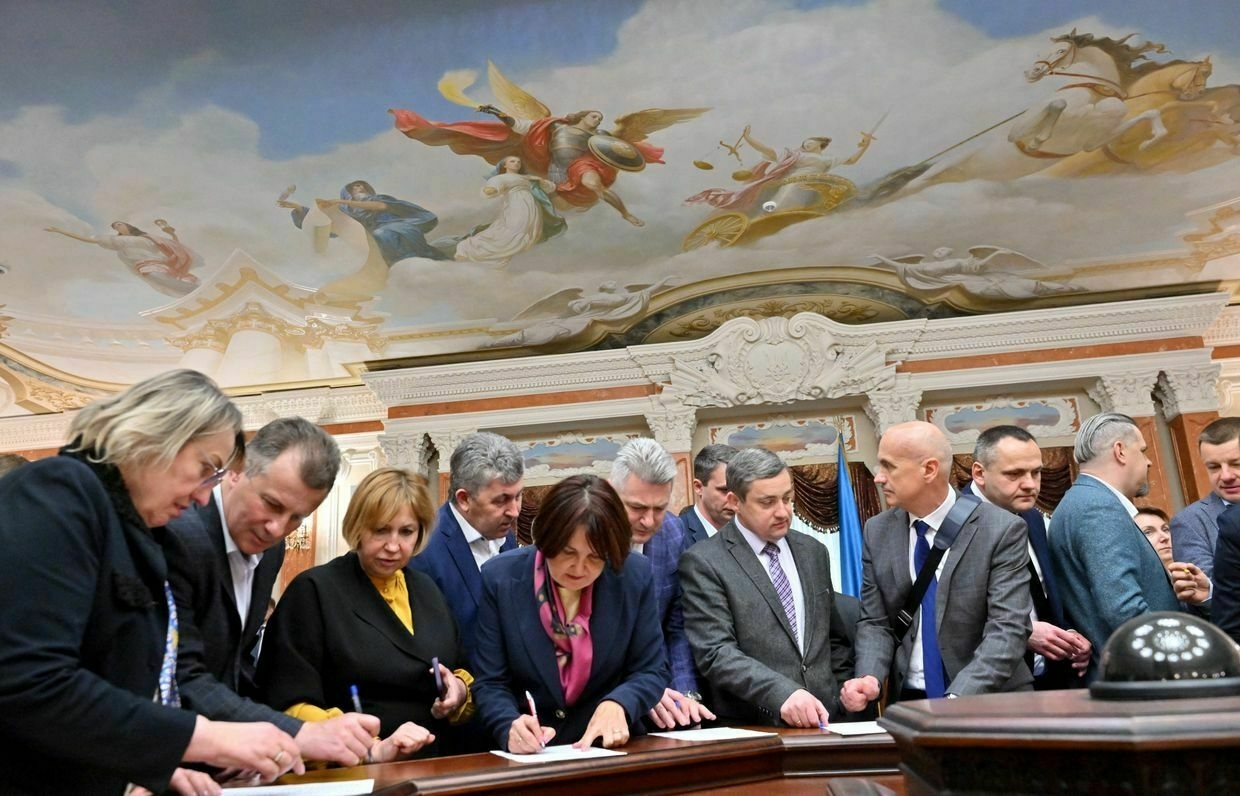
Exploiting the West’s weaknessThe all-out war forced the EU into a difficult dilemma.
“On the one hand, (the Europeans) want reforms,” Yaroslav Yurchyshyn, a lawmaker from the opposition Holos party, told the Kyiv Independent. “On the other hand, they understand that we are protecting them (by fighting Russia). Meanwhile, our authorities have a ready excuse for everything — ‘We’re at war, why are you bothering us?'"
He said that the Ukrainian authorities fulfilled some of the West’s requirements at the beginning of the full-scale invasion, but “as time went on, the authorities explained all reform failures by appealing to the war effort."
“EU’s position is weak, and it allows our government to deceive it.”
As a result, there is a major delay in reforms, Yurchyshyn said.
"Since late 2023, it's been mostly imitation," he said. "Now, it's almost total imitation."
He said that some technical changes demanded by the EU were being implemented, but there was no progress on fundamental and "politically sensitive" reforms.
Yaroslav Zheleznyak, another lawmaker from Holos, also said that the "EU's position is weak, and it allows our government to deceive it."
Larysa Golnyk, a whistleblower judge who has exposed corruption, and Vitaly Tytych, former head of the judicial watchdog Public Integrity Council, also share this opinion.
Political uncertainty in the U.S. following Trump's election is not helping Ukrainian reforms either.
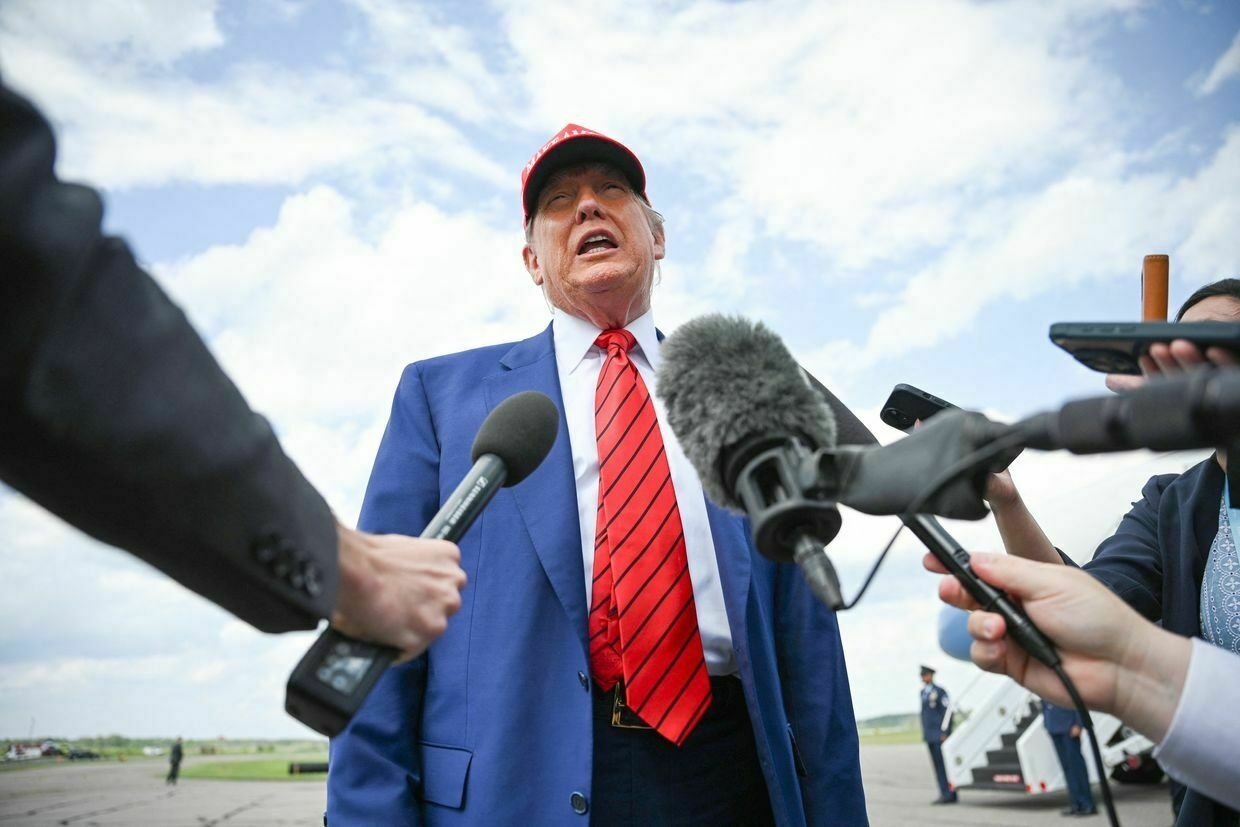
U.S. President Donald Trump speaks to the press upon arrival at Morristown Municipal Airport in Morristown, New Jersey, U.S. on June 20, 2025. (Mandel Ngan / AFP via Getty Images) After taking office on Jan. 20, Trump froze funding for the U.S. Agency for International Development (USAID), which had financed the implementation of rule of law reforms in Ukraine. The Trump administration has also announced plans to dismantle USAID completely.
"After Trump was elected, the U.S. pulled out of Ukrainian reform processes," Yurchyshyn said. "Now they're mostly observers."
Meanwhile, Zheleznyak said that "after Trump was elected, our (Western) partners have lost appetite for reforms."
"Our authorities interpreted this as carte blanche to do anything they want," he added.
How Ukrainian officials get away with having Russian citizenship – even amid warAs Russia is waging its war against Ukraine, some high-ranking Ukrainian officials with confirmed or suspected Russian citizenship are doing fine. Ukraine’s Constitution bans foreign citizenship for officials. However, in some cases, officials with Russian citizenship are not fired at all, and in other cases Ukraine’s judiciary stubbornly resists theirThe Kyiv IndependentOleg Sukhov
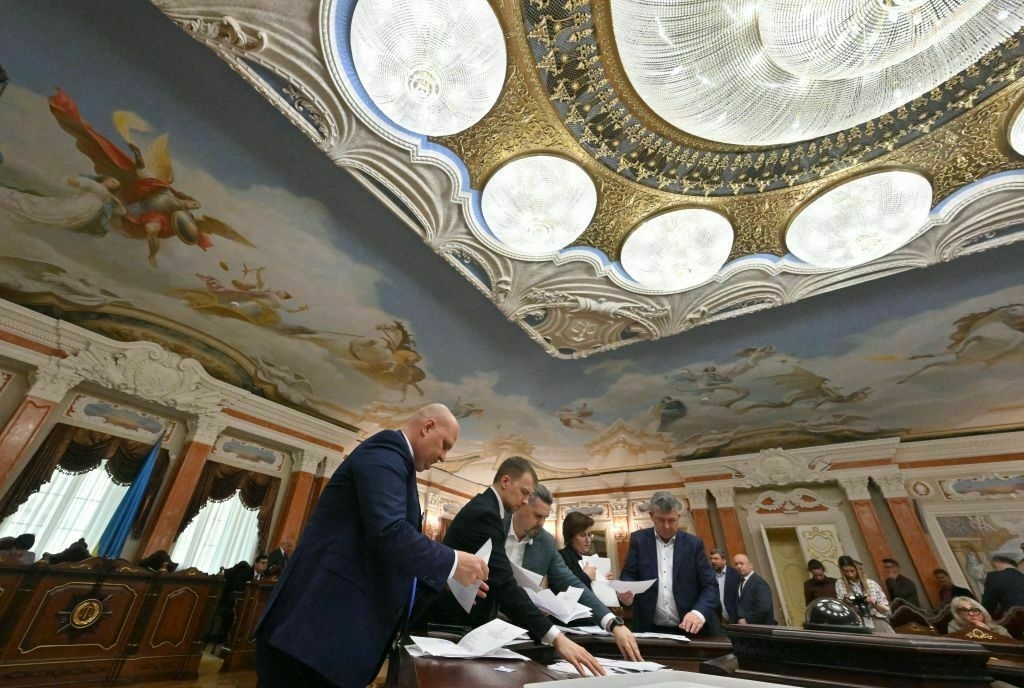
International experts' roleOne example of stalled reforms is an ongoing effort by Ukrainian authorities to reduce the role of international experts on supervisory boards and selection panels in key law enforcement and procurement agencies, several sources in Ukraine's parliament and civil society told the Kyiv Independent.
Ukrainian officials on selection panels have often backed controversial candidates for top government jobs, and international experts have been invited to offset their role. Foreign experts' function is to check the integrity, independence and professionalism of candidates for key positions.
Deputy Prime Minister Stefanishyna said in parliament on Dec. 6 that Ukrainian authorities were planning to eventually stop using international experts in the process of selecting governing officials because Ukraine would allegedly be reformed enough to cope on its own.
Meanwhile, President Volodymyr Zelensky's Deputy Chief of Staff Iryna Mudra said at a meeting of parliament's legal policy and justice committee on Jan. 8 that international experts should play an advisory role rather than make decisions.
Ukraine's Western partners appear to have turned a blind eye.
A civil society source who has spent years pushing for judicial reforms said that the participation of international experts "is supposed to uphold the rule of law but the EU is backing down and making concessions."
The source spoke on condition of anonymity due to the sensitive nature of the subject.
"If they continue doing this, then we can forget about any real rule of law," the source added.
Specifically, Katarína Mathernová, the EU ambassador to Ukraine, has herself stated that Ukraine may not need international experts with a casting vote, according to the source. Mathernová did not respond to a request for comment.
The authority of international experts on the selection panels for the High Qualification Commission, a judicial governing body, and the High Anti-Corruption Court is set to expire in June and November, respectively.
There is a risk that their powers will not be extended, one of the civil society sources said.
Stefanishyna told the Kyiv Independent that the Ukrainian authorities have "no intention whatsoever of shutting down the existing selection processes" with the participation of international experts.
She also argued that, eventually, Ukraine's institutions would have to function without foreign experts.
"EU member states and the U.S. should not have to think about how judges are being selected (in Ukraine)," she said. "A system must be in place that is trusted, with a clear process, and those institutions must function."
Watchdogs say Ukraine’s judicial reform on brink of catastropheUkraine’s leading anti-corruption watchdogs issued a statement on June 24 saying that the Ethics Council, the judicial reform’s main body, has undermined trust in the process by approving tainted candidates for top jobs and vetoing an anti-corruption crusader. “Since the Ethics Council’s decisions are concealed and there isThe Kyiv IndependentOleg Sukhov
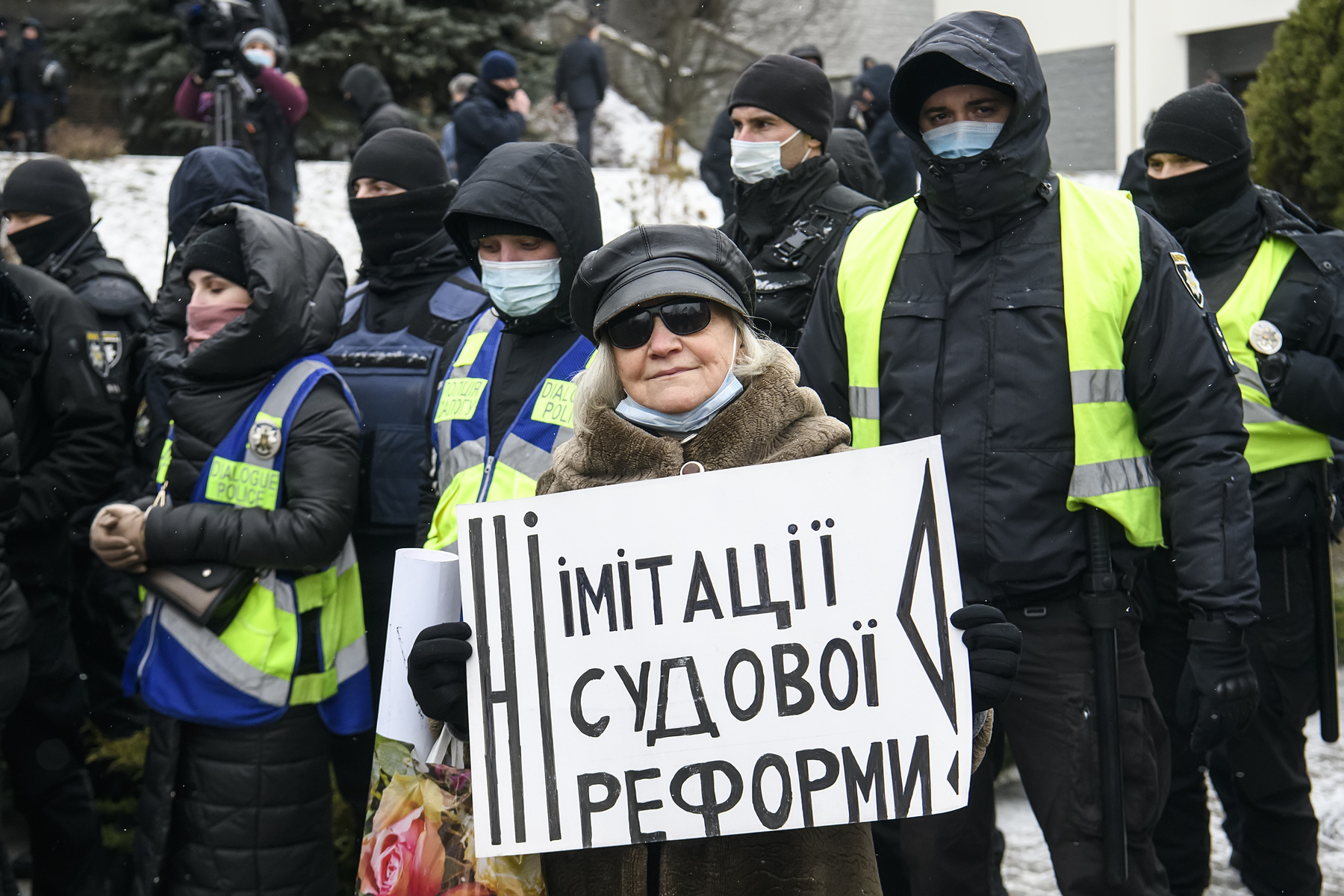
Botched judicial reformsOne example of a recently botched reform is the creation of the High Administrative Court, which is expected to play a crucial role by considering appeals against decisions made by government bodies. The court is expected to replace the discredited Kyiv District Administrative Court, which was liquidated in 2022 amid corruption investigations against its controversial ex-chairman, Pavlo Vovk.
Initially, Ukraine's international partners suggested that a panel fully consisting of foreign experts vet candidates for the High Administrative Court.
However, the Ukrainian government prepared a bill with a weaker role for international experts. Under that bill, candidates can be vetoed by a joint meeting of the High Qualification Commission and a panel that includes three Ukrainian experts and three international experts.
"The role of international experts has been completely watered down," one of the civil society sources told the Kyiv Independent.
The source said that, under the bill, it would be much harder for international experts to "stand their ground," given their diluted role.
In January the parliament went further and approved the first reading of a different bill, not supported by the Cabinet, creating a High Administrative Court without the participation of international experts at all.
Following a public outcry, the parliament backed down and approved the previous version of the bill in February, envisaging a panel with three Ukrainian experts and three foreign ones.
Another failed reform involves the Supreme Court.
Supreme Court judges have been involved in numerous scandals and controversies and faced accusations of corruption and other violations.
In 2022, the court's deputy chairman, Bohdan Lvov, was fired after his concealed Russian citizenship surfaced.
Vsevolod Kniaziev, then the court's chairman, was charged with accepting a $2.7 million bribe in 2023.
As a result, the judicial watchdog Dejure and other activists have called for inviting a panel of international experts to conduct integrity checks of Supreme Court judges.
On June 3, parliament ignored these calls and passed the first reading of a judicial reform bill that does not envisage integrity checks for Supreme Court judges with the participation of international experts.
Ukraine’s anti-corruption bureau under fire over its handling of leak scandalThe National Anti-Corruption Bureau of Ukraine (NABU) has come under fire as more details emerged over the past weeks about leaks from the bureau and its handling of the scandal. For nearly a month, the country’s key anti-corruption agency has been in turbulence. In late May, it was revealedThe Kyiv IndependentOleg Sukhov
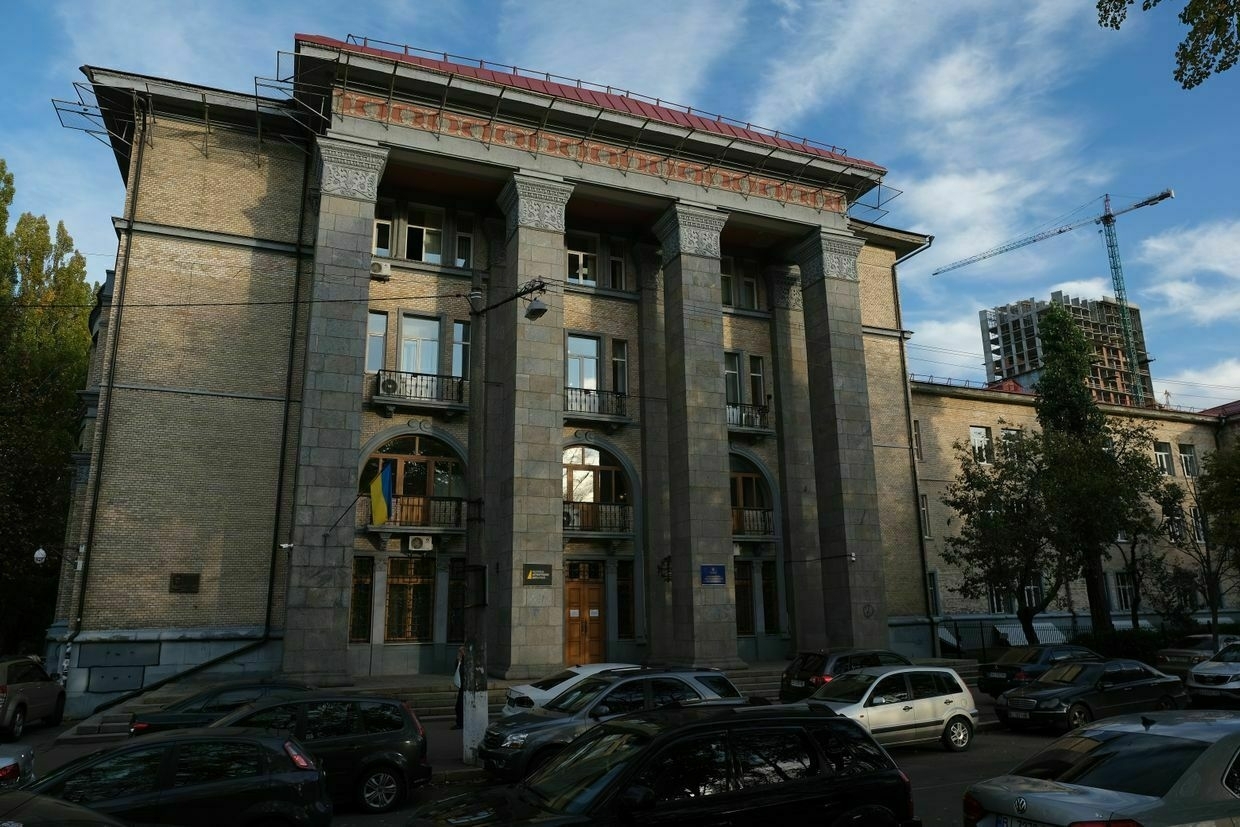
A backlog of stalled reformsUkraine's Western partners have also demanded a reform of the Security Service of Ukraine (SBU) for years. The reform envisages stripping the successor of the Soviet Union's KGB of investigative functions, including the ability to investigate economic crimes and corruption and refocus the security service exclusively on counter-intelligence and anti-terrorism.
Investigating economic crimes is seen as vulnerable to corruption, with international observers arguing that the highly militarized Security Service is the wrong body to hold a monopoly over such cases.
The Security Service was formally stripped of the power to investigate corruption in 2015 and economic crimes in 2021, with the functions passing to the National Anti-Corruption Bureau of Ukraine (NABU) and the Economic Security Bureau, respectively.
However, the SBU is managing to bypass this restriction. Prosecutors still routinely allow the SBU to investigate economic crimes and corruption jointly with other law enforcement agencies.
In 2021, the parliament passed in the first reading a bill stripping the SBU of all investigative functions but the bill has seen no progress since then.
One of the sources told the Kyiv Independent that "when the Russian invasion began, any moves toward reforming the SBU were essentially put on hold by parliament and all stakeholders."
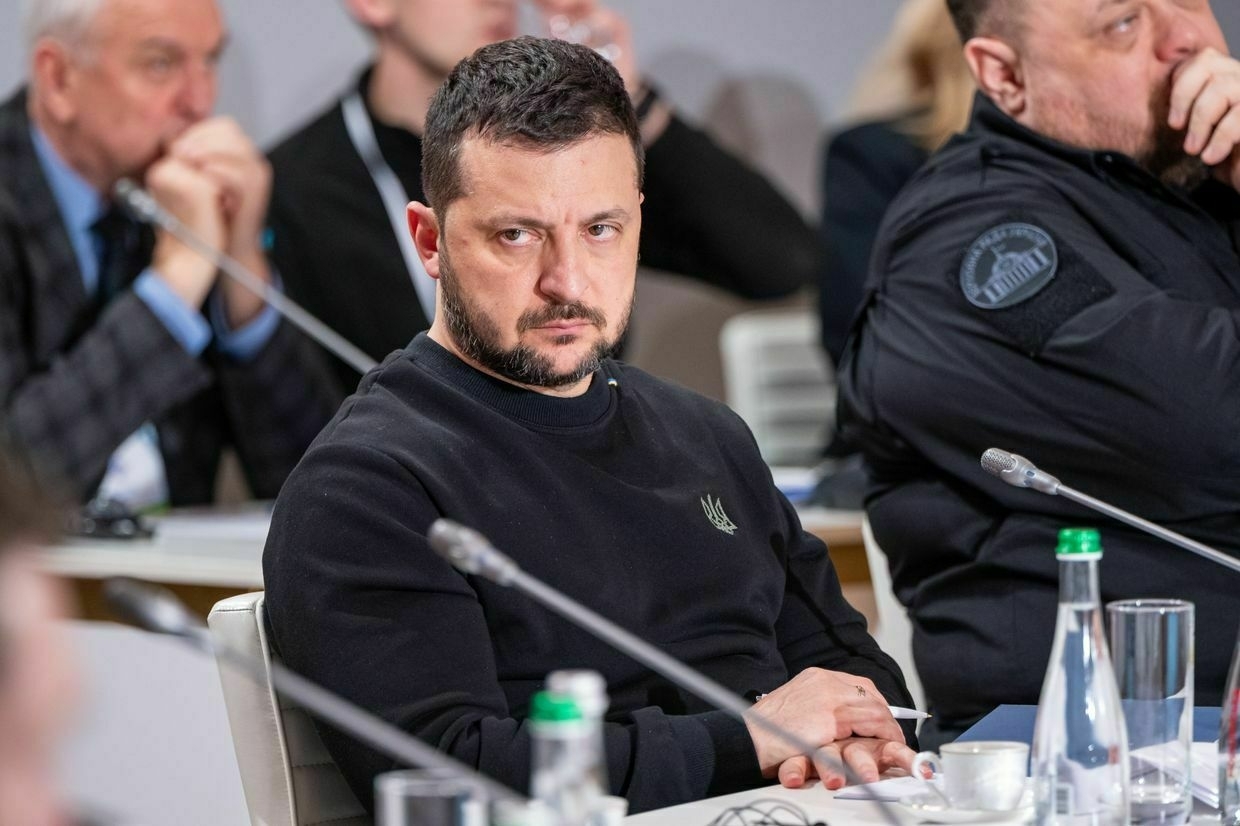
President Volodymyr Zelenskyy attends the Congress of Local and Regional Authorities in Lviv Oblast, Ukraine, on Dec. 15, 2023. (Stanislav Ivanov / Global Images Ukraine via Getty Images) Mariana Bezuhla, a controversial and outspoken lawmaker and formerly a member of Zelensky's Servant of the People party, said in January that the European Union and NATO "have become completely indifferent to the reform of Ukraine's security sector," including the SBU.
Another problem seen as a violation of Ukraine's obligations to its Western partners was the closure of the public register of officials' asset declarations following Russia's full-scale invasion in 2022. The Ukrainian authorities passed a law to allow officials not to file electronic asset declarations and shut down public access to all previous declarations.
The West supported restoring the asset declaration system. However, Ukraine's Western partners did not insist on making government officials' asset declarations public again, according to Yurchyshyn, Butko and a source from Ukraine's civil society.
Under domestic pressure, Zelensky signed a law in 2023 to restore the asset declaration system and make declarations public again.
Officials accused of using war as pretext for hiding ill-gotten wealthAs Ukrainian soldiers are defending their homeland on the front line, officials in the rear are accused of using the war as a pretext for hiding their wealth. They are able to do so because one of Ukraine’s main anti-corruption tools, the asset declaration system, has been effectively eliminated.The Kyiv IndependentOleg Sukhov
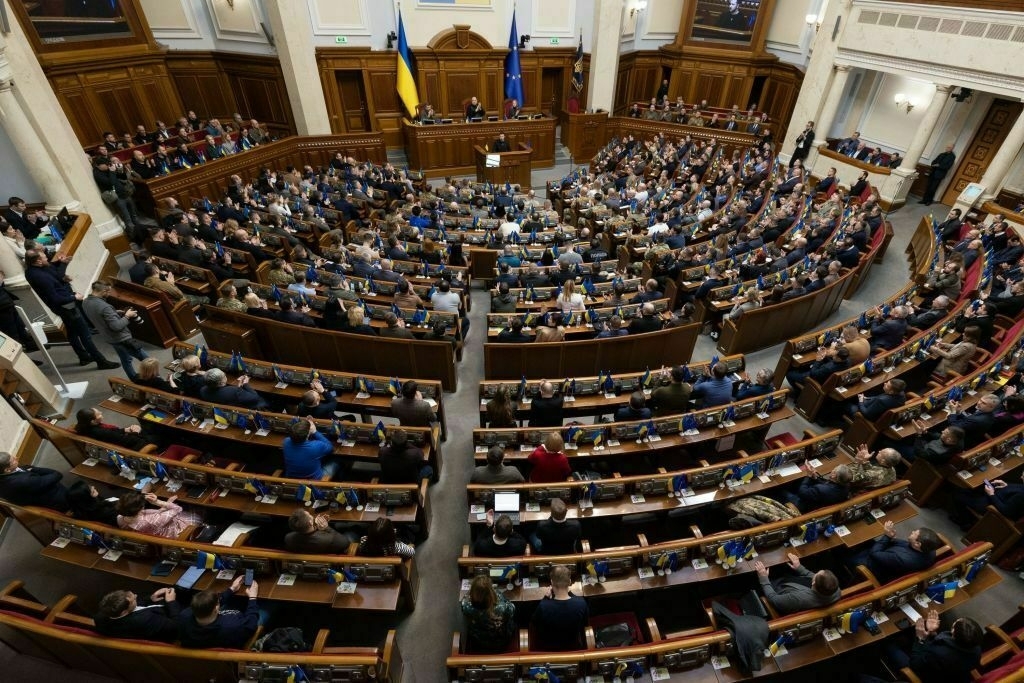
Defense procurement scandalReforms in the defense sector have also begun to lose momentum.
One of the key reforms concerns the Defense Procurement Agency (DPA), which was created in 2022 to make defense procurement more transparent and to sideline middlemen making fortunes on supplies to the military.
In January, the DPA's supervisory board extended the contract of its head, Maryna Bezrukova, but Defense Minister Rustem Umerov fired her nonetheless.
Umerov has been lambasted by anti-corruption activists for what they see as his efforts to destroy the agency's independence. He denied the accusations of wrongdoing.
On Jan. 27, G7 ambassadors called for a swift resolution of the Defense Procurement Agency dispute and urged uninterrupted continuation of weapons procurement.
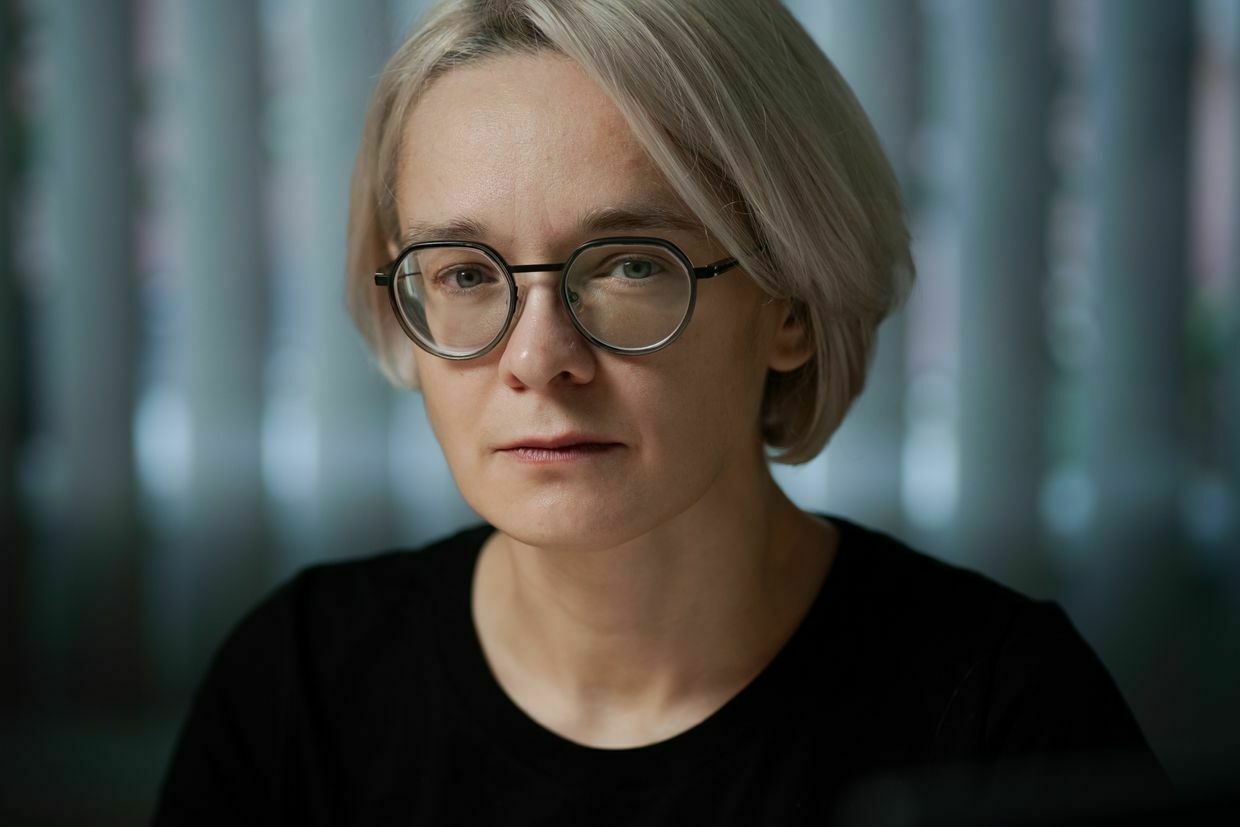
Maryna Bezrukova, the head of the Defense Procurement Agency in Kyiv, Ukraine, on June 19, 2024. (Danylo Pavlov / The Kyiv Independent) However, the West has issued no concrete calls for reinstating Bezrukova or restoring the DPA's independence.
The G7 statement is vague and can be interpreted in different ways, one of the civil society sources said.
It was an attempt to "stop this chaos and return to proper procedures," but Umerov may interpret it in the sense that he can appoint a new head of the agency and a new supervisory board, according to the source.
The source said that the West's soft approach allowed Umerov to turn his back on the agency's independence. Umerov appointed Arsen Zhumadilov as the new head of the Defense Procurement Agency (DPA) on March 6, bypassing the supervisory board.
"When it comes to the defense sector, international partners are even weaker because it's very difficult for them to dictate how Ukraine should fight," the source said.
The Kyiv IndependentYour support allows us to bring independent, locally-sourced news about Ukraine to the worldThe Kyiv Independent
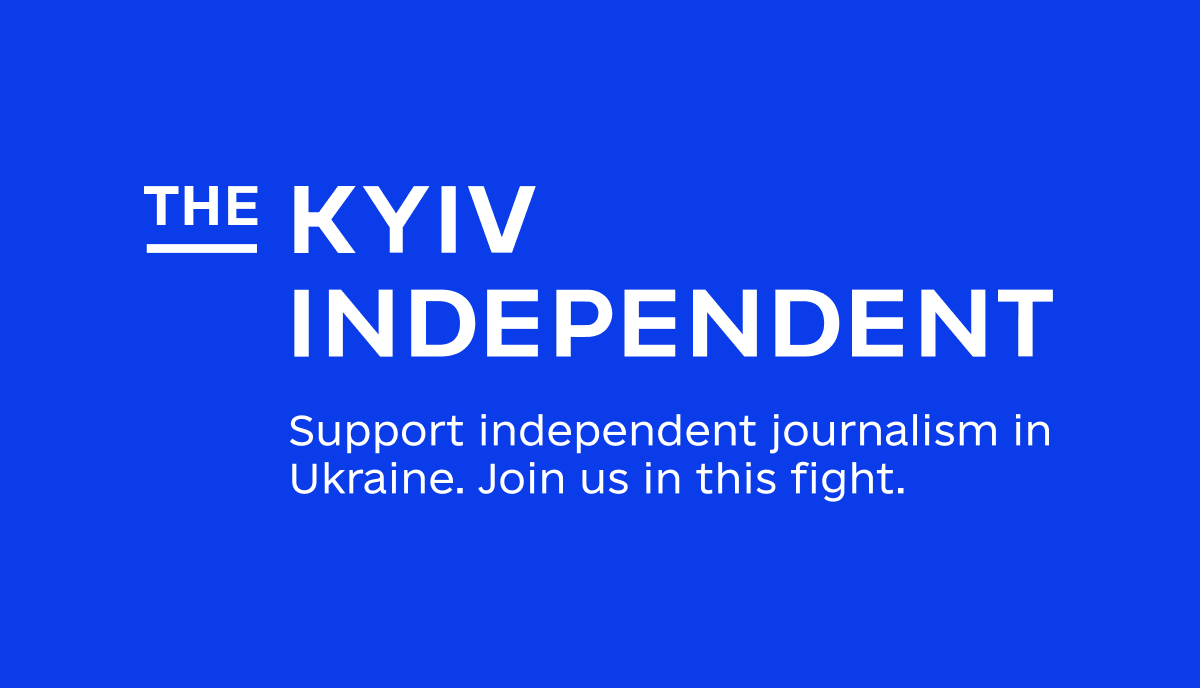 Defense Minister Umerov dismisses top official who stood up to himUkraine’s lengthy efforts to clean up its weapons procurement are in danger of being unwound as the Defense Ministry strangleholds the Defense Procurement Agency, say anti-corruption activists and lawmakers. Defense Minister Rustem Umerov announced on Jan. 24 that he would not renew the contract of Maryna Bezrukova, the head
Defense Minister Umerov dismisses top official who stood up to himUkraine’s lengthy efforts to clean up its weapons procurement are in danger of being unwound as the Defense Ministry strangleholds the Defense Procurement Agency, say anti-corruption activists and lawmakers. Defense Minister Rustem Umerov announced on Jan. 24 that he would not renew the contract of Maryna Bezrukova, the headThe Kyiv IndependentDominic Culverwell
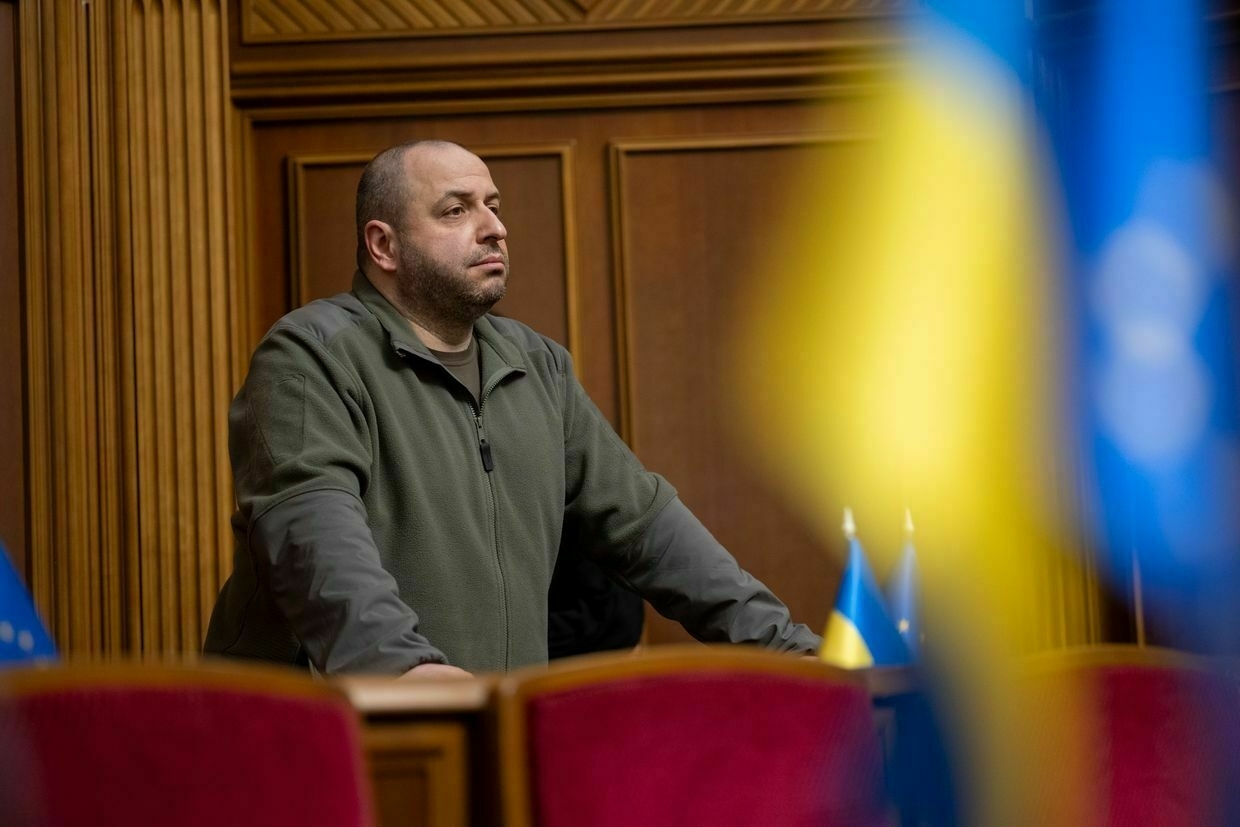
-
'Crushing' Russia with sanctions would jeopardize Ukraine peace talks, Rubio says
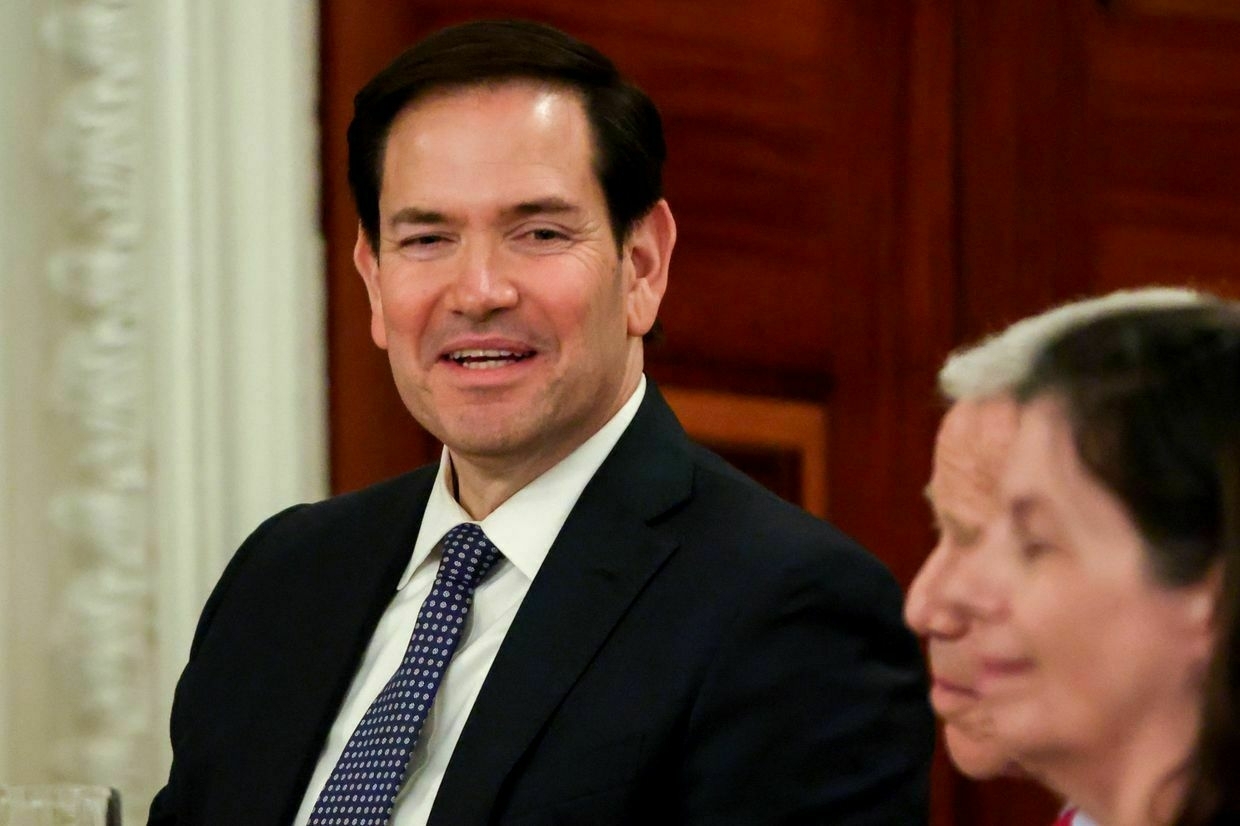
U.S. Secretary of State Marco Rubio said in an interview with Politico on June 25 that U.S. President Donald Trump will resist European pressure to escalate sanctions on Russia, arguing that doing so could close the door to potential peace negotiations with Moscow.
Speaking with Politico on the sidelines of the NATO summit in The Hague, Rubio said Trump wants to keep open a diplomatic channel with Russian President Vladimir Putin, despite growing frustration from European leaders and President Volodymyr Zelensky over Russia’s refusal to agree to a ceasefire.
“If we did what everybody here wants us to do, and that is come in and crush them with more sanctions, we probably lose our ability to talk to them about the ceasefire and then who’s talking to them?” Rubio said.
Rubio acknowledged that Russia appears committed to pursuing its objectives by force.
“Our sense of it is that the Russians are going to try to achieve on the battlefield what they’ve demanded at the negotiating table, which is certain territories, administrative lines, and the like,” he said. “We think it’s going to be a lot harder for them to achieve that than they think it’s going to be."
Rubio added that Trump “will know the right time and place” for additional sanctions, but emphasized that imposing them too soon could signal that the U.S. has given up on a negotiated resolution.
Previously, Trump said he had refrained from imposing new sanctions on Russia because he believed a peace deal with Moscow might be within reach, warning he did not want to jeopardize negotiations by acting prematurely.
Speaking after two rounds of peace talks in Istanbul between Moscow and Kyiv that led to no ceasefire, Trump on June 5 declined to say when additional sanctions on Russia might be imposed, only noting there is a deadline “in (his) brain."
“If he (Trump) does it, you’re almost admitting that this is not going to be negotiated anytime soon,” he said. “We’re going to continue to engage. In the sense that if there’s an opportunity for us to make a difference and get them to the table, we’re going to take it."
Zelensky and several European leaders are expected to ask Trump during meetings at the summit to increase economic pressure on Moscow.
It has been more than 100 days, since Ukraine agreed to a U.S.-backed complete ceasefire, while Russia continues to reject it. Moscow continues pushing maximalist demands while intensifying attacks across Ukrainian cities.
Investigation: How Russia prepares its strategic missile plant for ‘eternal war’Key findings: * Despite international sanctions, Russia’s strategic missile plant was able to import complex machinery to dramatically increase missile production. * The Kyiv Independent has identified the equipment supplied to the plant, as well as the supply chains, mostly from China. * We located the plant’s new premises, built to house theThe Kyiv IndependentAlisa Yurchenko
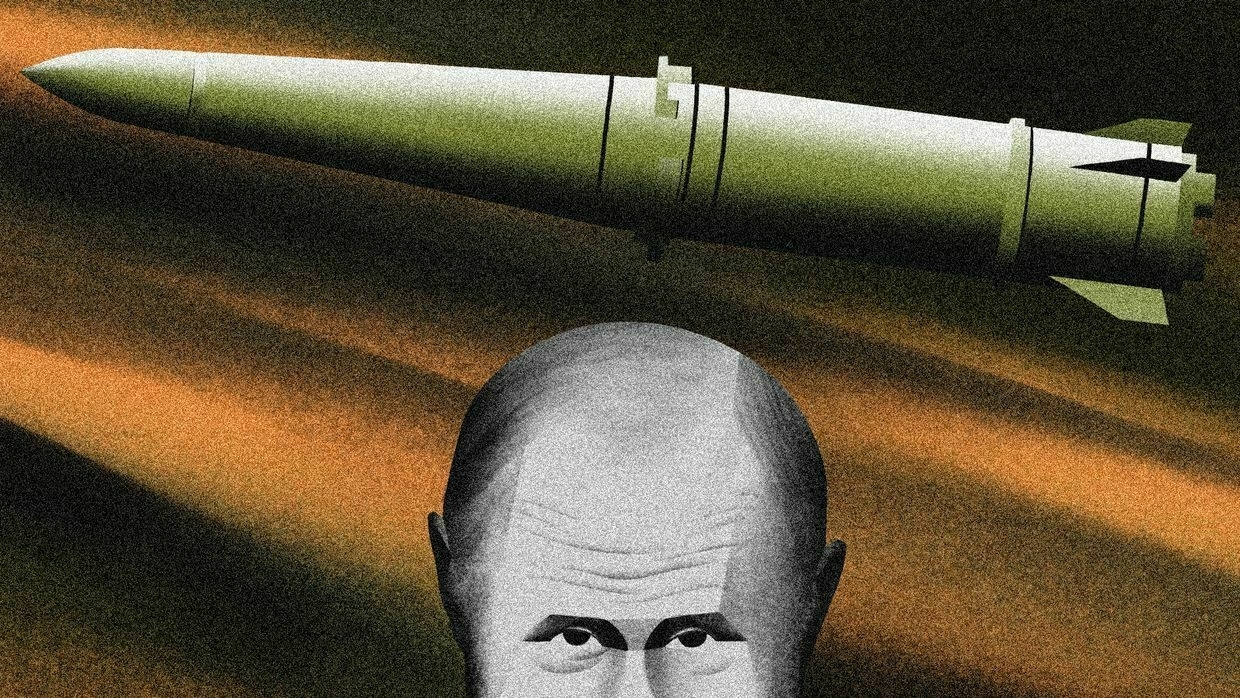
-
US citizen wanted for child sex crimes arrested in Ukraine after 30 years on the run
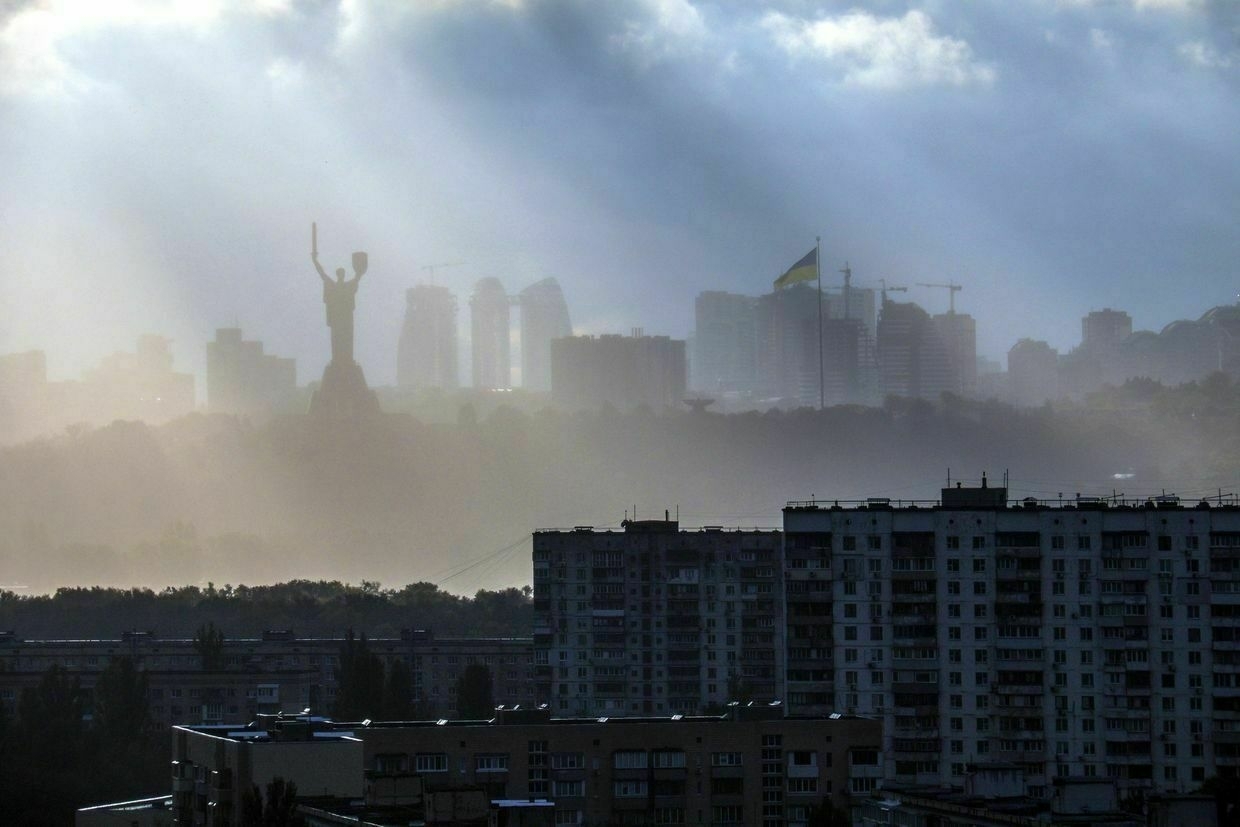
Ukrainian authorities have arrested a 66-year-old U.S. citizen who had been on the run for more than three decades, wanted for multiple child sex crimes committed in Arizona in the 1980s and early 1990s, Ukraine’s Office of the Prosecutor General said on June 25.
The man — who has not been named — was detained in Kyiv Oblast in a joint operation coordinated by Ukrainian prosecutors in cooperation with Ukraine’s Cyber Police Department, the FBI, and Ukraine’s Ministry of Justice. He had been living in Ukraine under a false identity, using forged documents under the name of a Mexican citizen.
According to U.S. law enforcement, the suspect worked as the director of a preschool in Pima County, Arizona, and committed a series of sexual offenses against four children aged 4 to 9 between 1984 and 1991. Before sentencing by the Arizona Superior Court, he reportedly fled the U.S. and avoided prosecution for more than 30 years.
Ukrainian authorities located him using digital tools, including open-source intelligence analysis. He was found living in a house in Kyiv Oblast.
Following his identification, law enforcement carried out a search and arrested him at his residence. Prosecutors are currently preparing a request to a Ukrainian court for temporary arrest pending extradition.
According to U.S. officials, the man faces 15 counts under criminal law related to the sexual abuse of children.
Ukraine’s Office of the Prosecutor General said it remains committed to international cooperation in criminal justice, particularly in extraditing individuals accused of grave crimes, including those involving the sexual exploitation of children.
‘Something unknown’ hits key Russian drone facility in Taganrog, Ukrainian official says“Something unknown flew into the Atlant-Aero plant in Taganrog,” Andrii Kovalenko, head of the counter-disinformation center, said. “This is an important node in the Russian military-industrial complex, specializing in components for combat drones and control systems.”The Kyiv IndependentAnna Fratsyvir
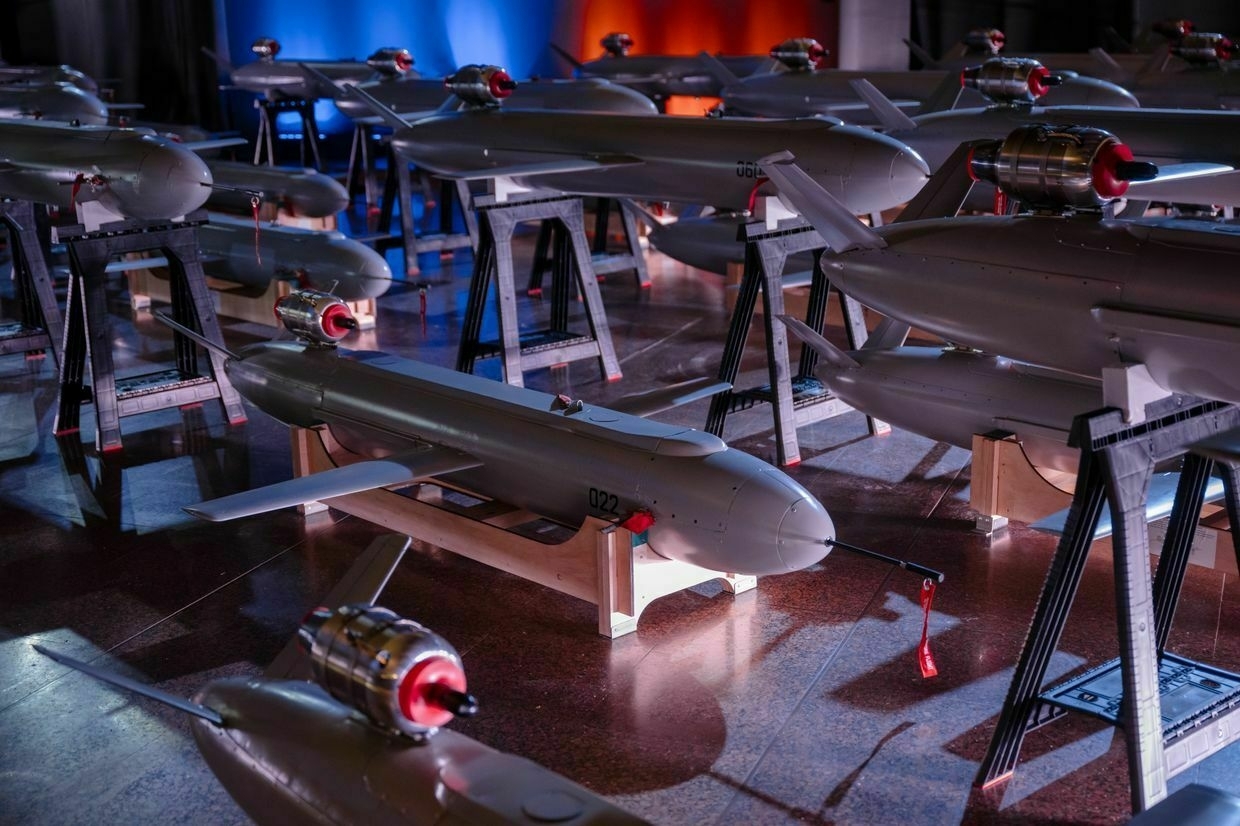
-
At least 23 killed, more than 300 injured in Russian drone and missile attacks across Ukraine over past day
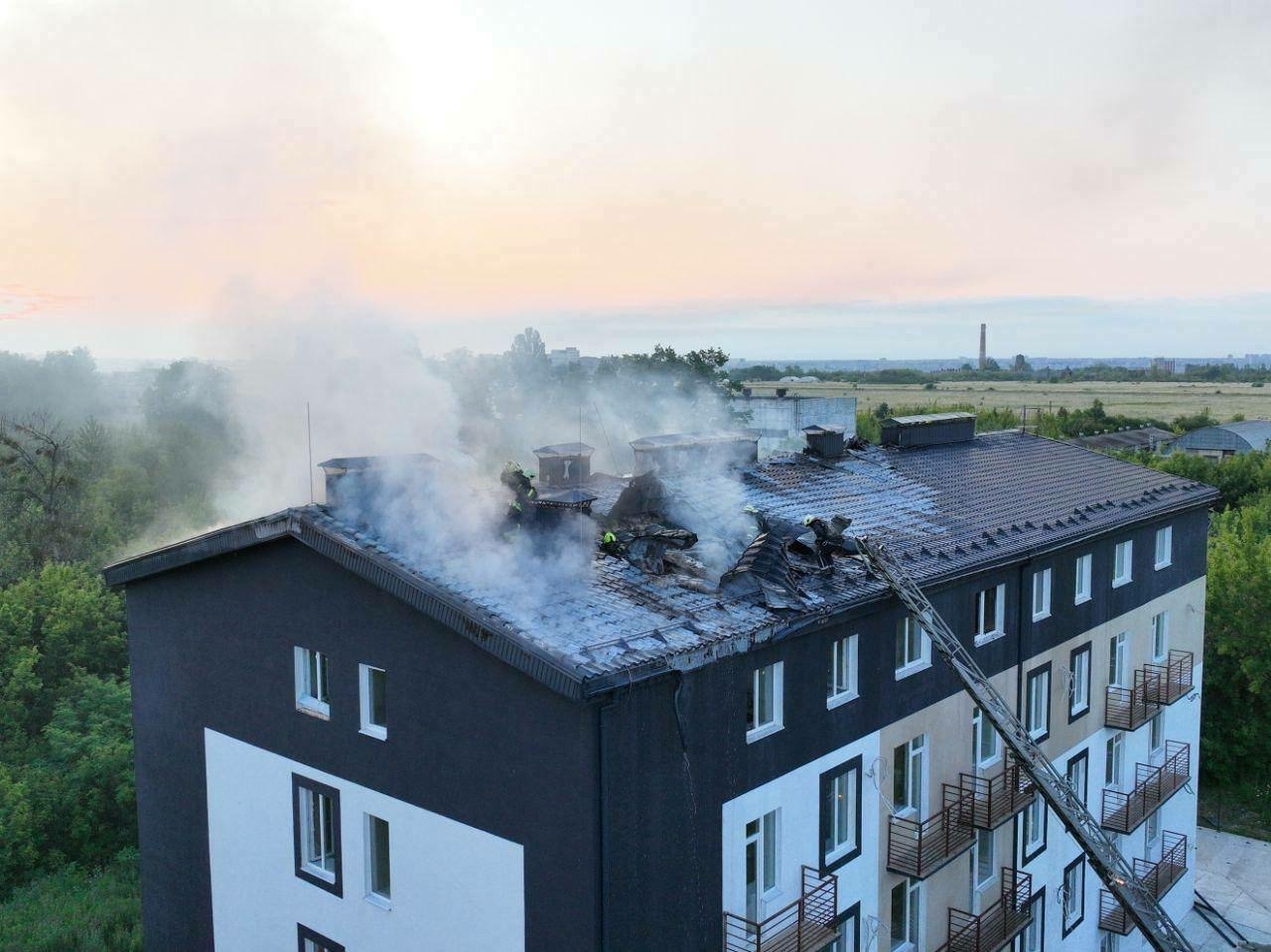
Russian attacks across Ukraine killed at least 23 people and injured more than 300 others over the past 24 hours, local officials said on June 25.
According to the Ukrainian Air Force, Russian forces launched 71 Shahed-type attack drones and decoys from multiple directions, including Bryansk, Millerovo, Kursk, and occupied Crimea. Ukraine’s air defenses destroyed 52 of them.
In Dnipropetrovsk Oblast, a ballistic missile attack killed at least 20 people, 18 in Dnipro and two in the Samarskyi district, in one of the deadliest single attacks in recent weeks, governor Serhii Lysak said.
Nearly 300 people were injured, and extensive damage was reported to high-rise buildings, houses, dormitories, cars, schools, hospitals, administrative offices, and a passenger train. Drone strikes overnight also hit Nikopol and caused a fire in Synelnykove district.
In Kharkiv Oblast, nine people were injured in strikes on Kharkiv city, Kupiansk, and surrounding villages, according to Governor Oleh Syniehubov. Russian forces used a mix of weaponry, including air-launched rockets, glide bombs, and various drones. Civilian infrastructure was damaged, including residential buildings, houses, and an industrial hangar.
In Zaporizhzhia Oblast, five peope were injured in attacks across the Zaporizhzhia, Vasylivka, and Polohy districts, Governor Ivan Fedorov reported. Russian forces conducted four missile strikes on Zaporizhzhia and eight airstrikes on several towns. Around 300 drones, and over 150 artillery strikes were recorded across 13 settlements.
In Donetsk Oblast, three civilians were killed in Pokrovsk, Zoloti Prudy, and Novoiavlenka, Governor Vadym Filashkin said. 11 more were wounded in the region over the past day.
Russia has launched over 28,000 Shahed drones at Ukraine since 2022, with nearly 10% fired in June alone, Zelensky saysSpeaking on June 24, Volodymyr Zelensky stressed that Russia would never have been able to carry out such drone attacks without support from Iran, and Ukraine, in turn, could not have intercepted most of the drones without the help of its international partners.The Kyiv IndependentOlena Goncharova
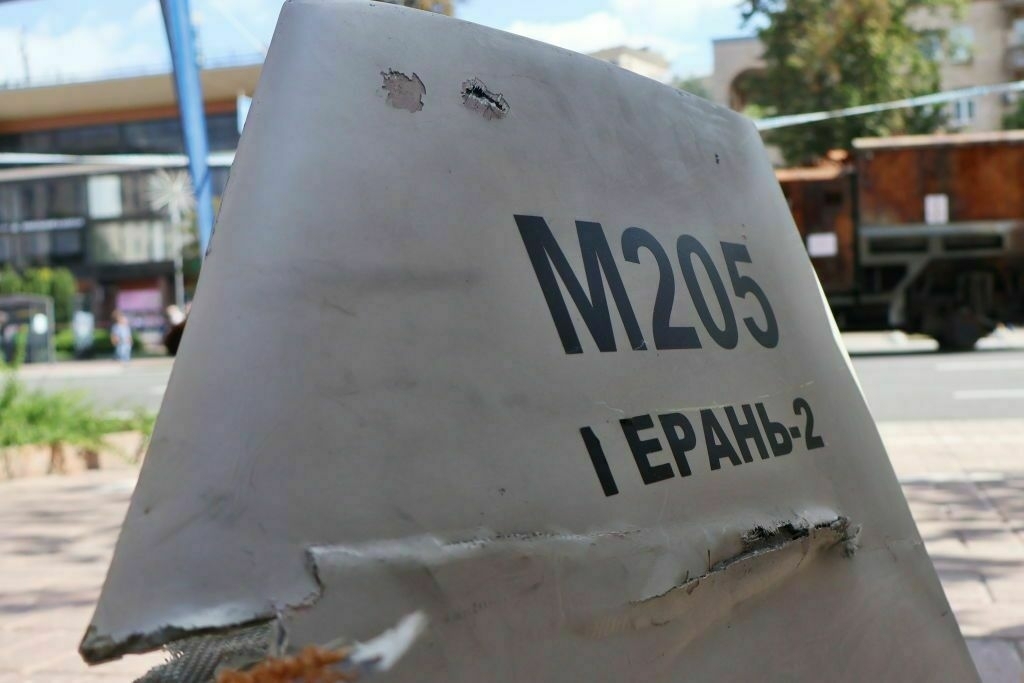
-
'Something unknown' hits key Russian drone facility in Taganrog, Ukrainian official says
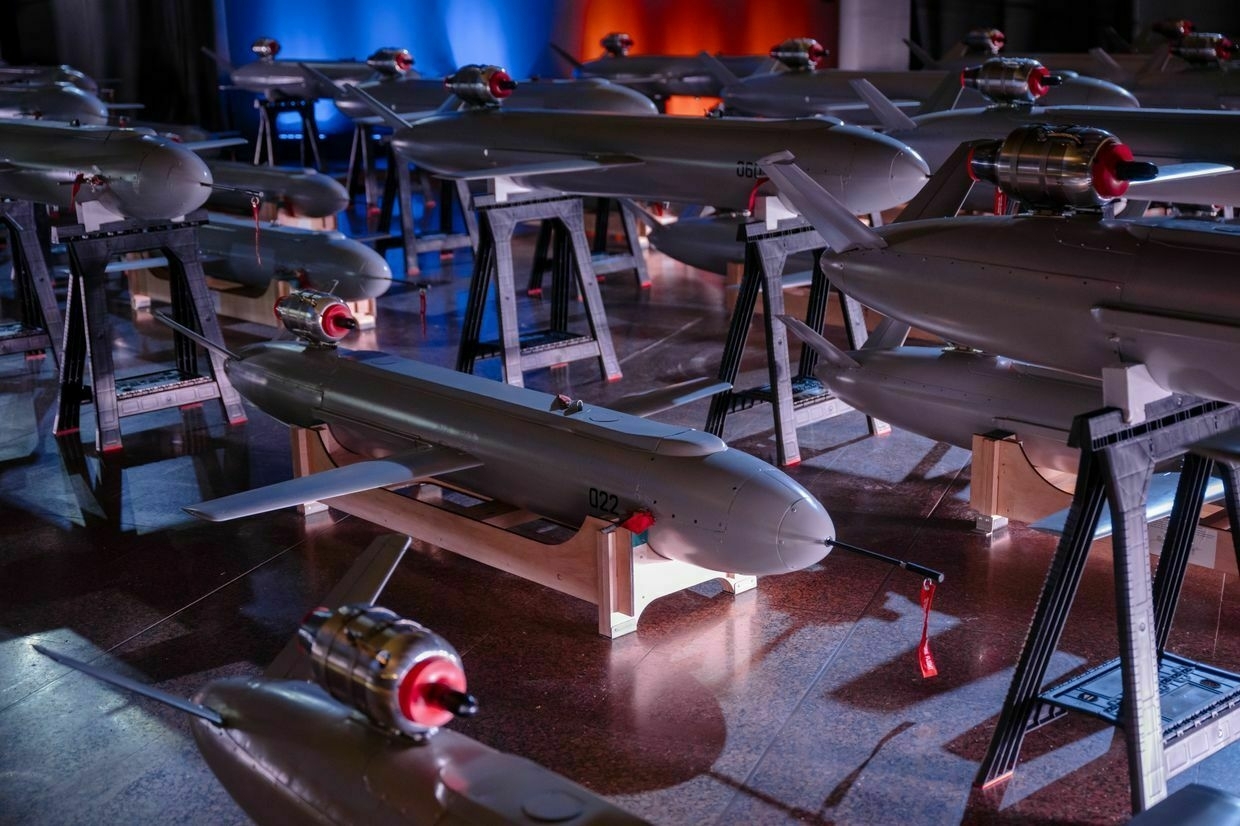
A key military-industrial site in the Russian city of Taganrog linked to Moscow’s production of combat drones and electronic warfare systems was damaged overnight, a Ukrainian official said on June 25, amid Russian reports of Ukrainian drones targeting the area.
“Something unknown flew into the Atlant-Aero plant in Taganrog,” Andrii Kovalenko, head of the counter-disinformation center at Ukraine’s National Security and Defense Council said.
“This is an important node in the Russian military-industrial complex, specializing in components for combat drones and control systems."
Kovalenko said the plant is involved in the production of “Orion” drones, electronic warfare complexes, and digital integration systems for strike FPV (first person view) drones and loitering munitions.
Russian authorities reported a wave of overnight Ukrainian drone attacks across multiple regions, including Rostov, which borders eastern Ukraine. Russia’s Defense Ministry said its forces shot down 40 Ukrainian drones over several areas, including the Crimean Peninsula and seven over the Rostov region.
Rostov Governor Yuri Slyusar said on Telegram that while there were no casualties, the strikes allegedly caused a fire at a sports complex and damaged a high school and two residential buildings in Taganrog. In nearby Azov, a grain warehouse and industrial facility were hit, he added, without providing further detail.
The Kyiv Independent could not verify the claims.
Throughout Russia’s full-scale invasion, Ukraine and Russia have extensively invested in drone technology, revolutionizing the way wars are fought.
Ukraine has ramped up its domestic drone production and long-range strike capabilities as it seeks to weaken Russian military infrastructure deep behind enemy lines. Earlier in June, Ukrainian drones targeted long-range Russian bombers in an operation dubbed “Spiderweb."
Russia has escalated its missile and drone attacks on Ukrainian cities, launching hundreds of drones during overnight assaults. Since February 2022, Moscow has launched 28,743 Shahed-type drones at Ukraine
Speaking at the NATO Defense Industry Forum in The Hague on June 24, President Volodymyr Zelensky said Ukraine can produce over 8 million drones of various types each year. He called for an increased investment from the allies to reach that potential.
More empty threats from Washington, more deadly bombs from RussiaThe ongoing and escalating slaughter of Ukrainian civilians depends on two preconditions: Moscow’s determination to erase Ukraine, and the tacit permission it receives from America and Europe. On Monday, a Russian missile tore through a residential building in Kyiv, leaving at least six civilians dead and over a dozenThe Kyiv IndependentAndrew Chakhoyan
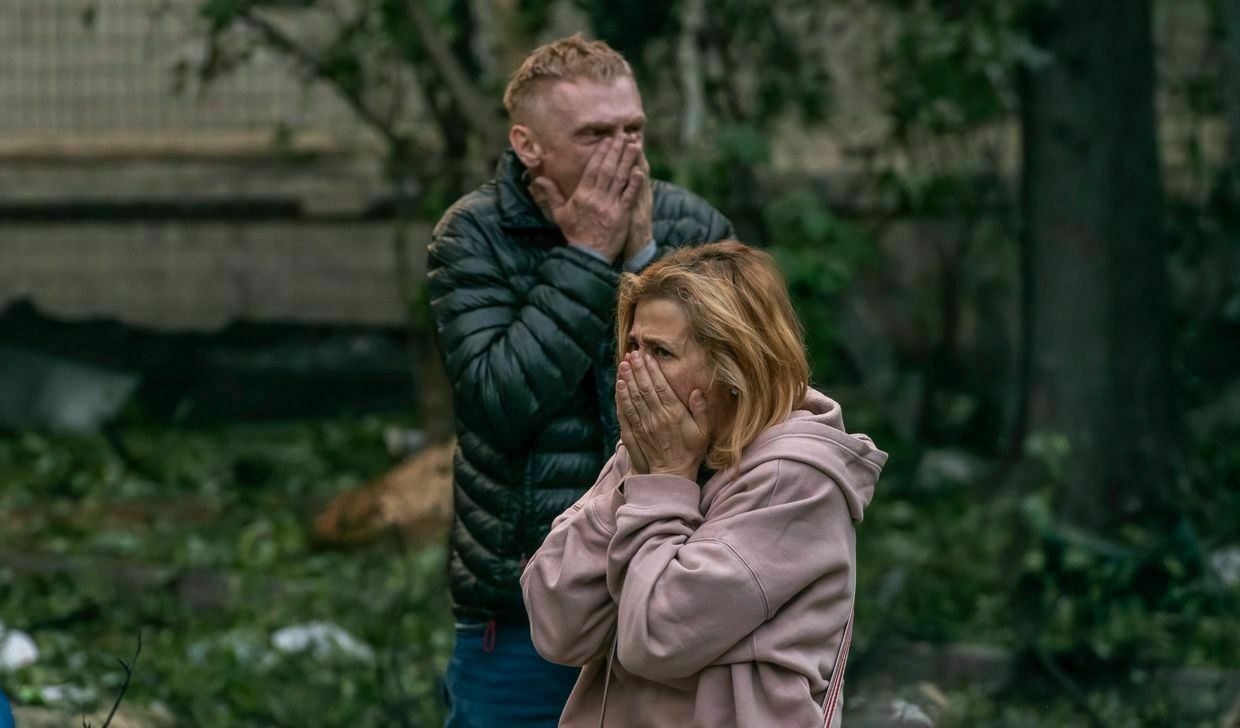
-
'You can count on us' — EU reiterates support for Ukraine at NATO summit
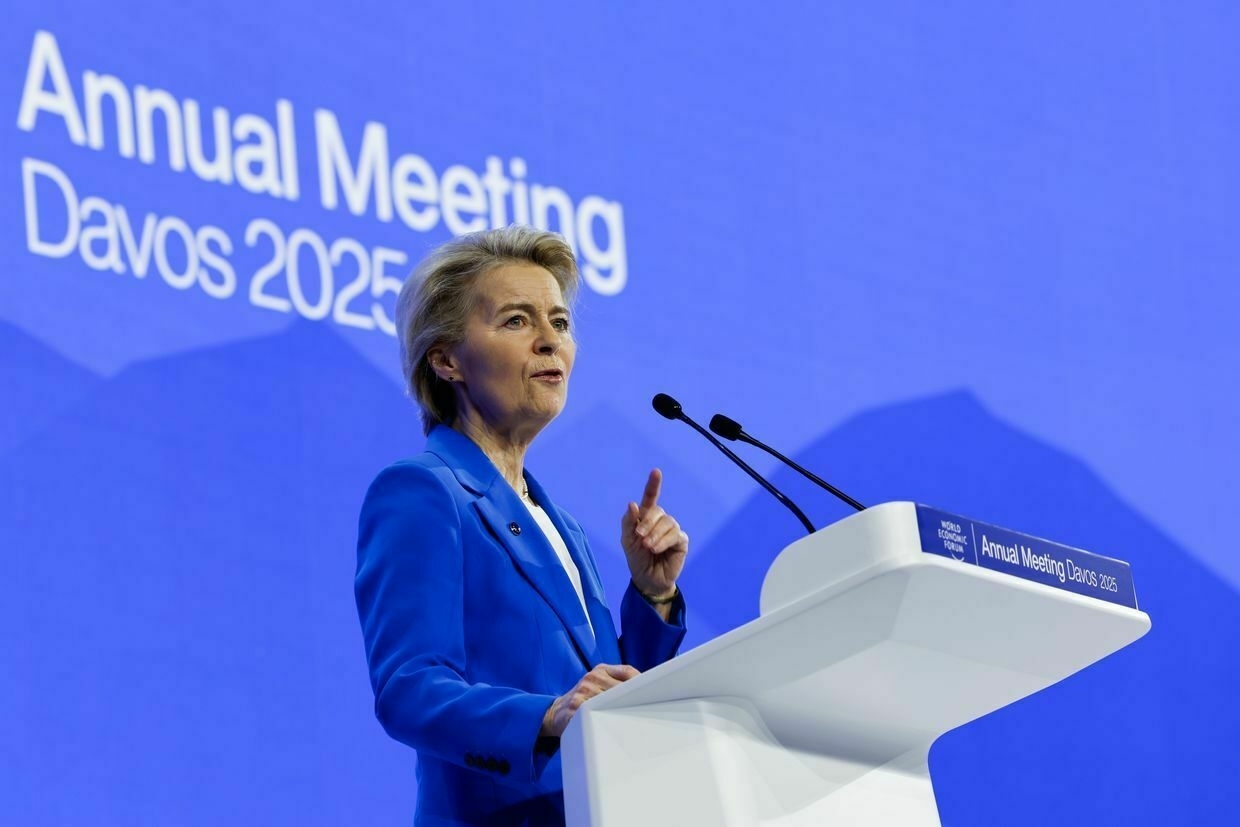
European Commission President Ursula von der Leyen reiterated the EU’s ongoing support for Ukraine at a NATO summit in The Hague on June 24.
“We have designed a funding program of 50 billion euros, we call it Safe, where member states, but also Ukraine and other partners, can take these loans to invest in the (Ukrainian) defense industry,” she said, addressing President Volodymyr Zelensky.
“We are integrating our defense industries as if Ukraine was in the EU. This is good for Ukraine. And just as good for Europe, as Ukraine is now home to extraordinary innovation,” von der Leyen later said in a post to social media.
NATO is holding a summit in The Hague from June 24-25 with world leaders, including Zelensky and U.S. President Donald Trump present.
"(M)y dear friend Volodymyr, you’re here among friends and we stand by Ukraine from the very first day on and you can count on us also for the future," von der Leyen said.
The leader described the EU’s 18th sanctions package as a “biting one” to apply pressure on Moscow and Russian President Vladimir Putin.
“Secondly, of course, there’s constant financial support to Ukraine because we know you’re fighting a war that is also protecting our values and our principles, and thirdly, indeed, we have to put pressure on President Putin (so) that he comes to the negotiation table,” von der Leyen said.
She noted that members of the Group of Seven (G7) will also be implementing additional sanctions against Russia.
“All this shows you are among friends, you can count on us, we stand by your side,” von der Leyen said.
The White House has confirmed that Trump and Zelensky will hold a meeting at the NATO summit.
Investigation: How Russia prepares its strategic missile plant for ‘eternal war’Key findings: * Despite international sanctions, Russia’s strategic missile plant was able to import complex machinery to dramatically increase missile production. * The Kyiv Independent has identified the equipment supplied to the plant, as well as the supply chains, mostly from China. * We located the plant’s new premises, built to house theThe Kyiv IndependentAlisa Yurchenko
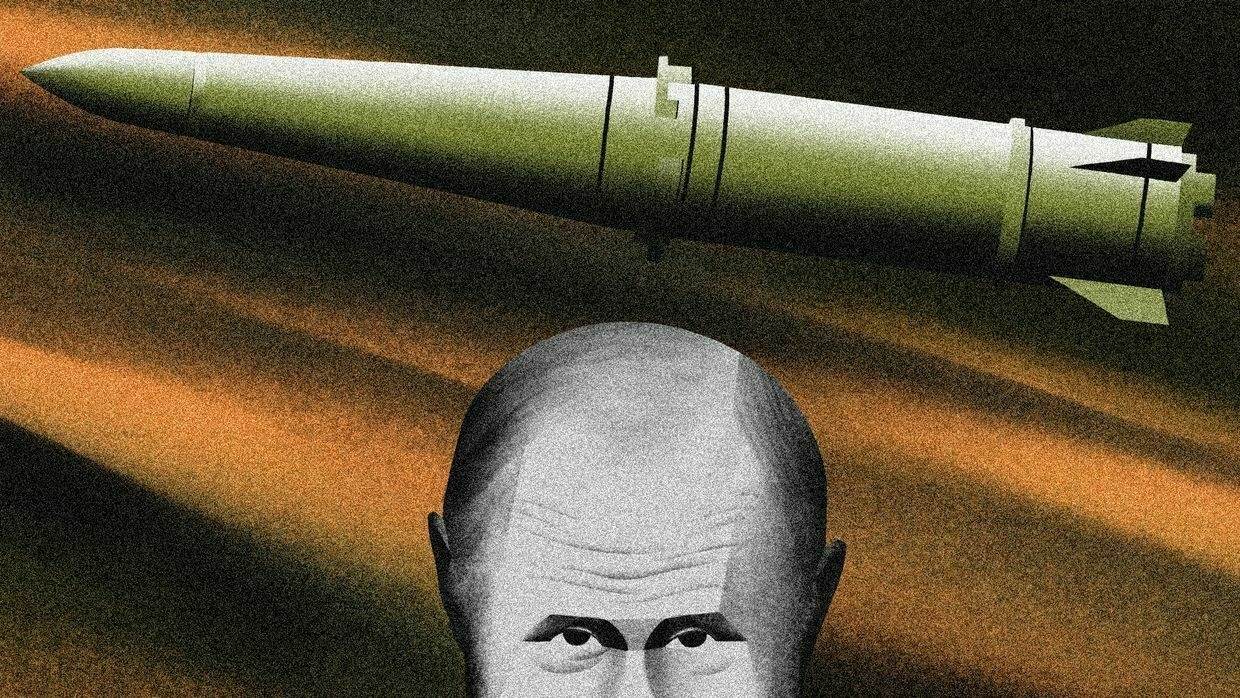
-
Lithuania signs memorandum with Northrop Grumman, Nammo amid Russian threat to regional security
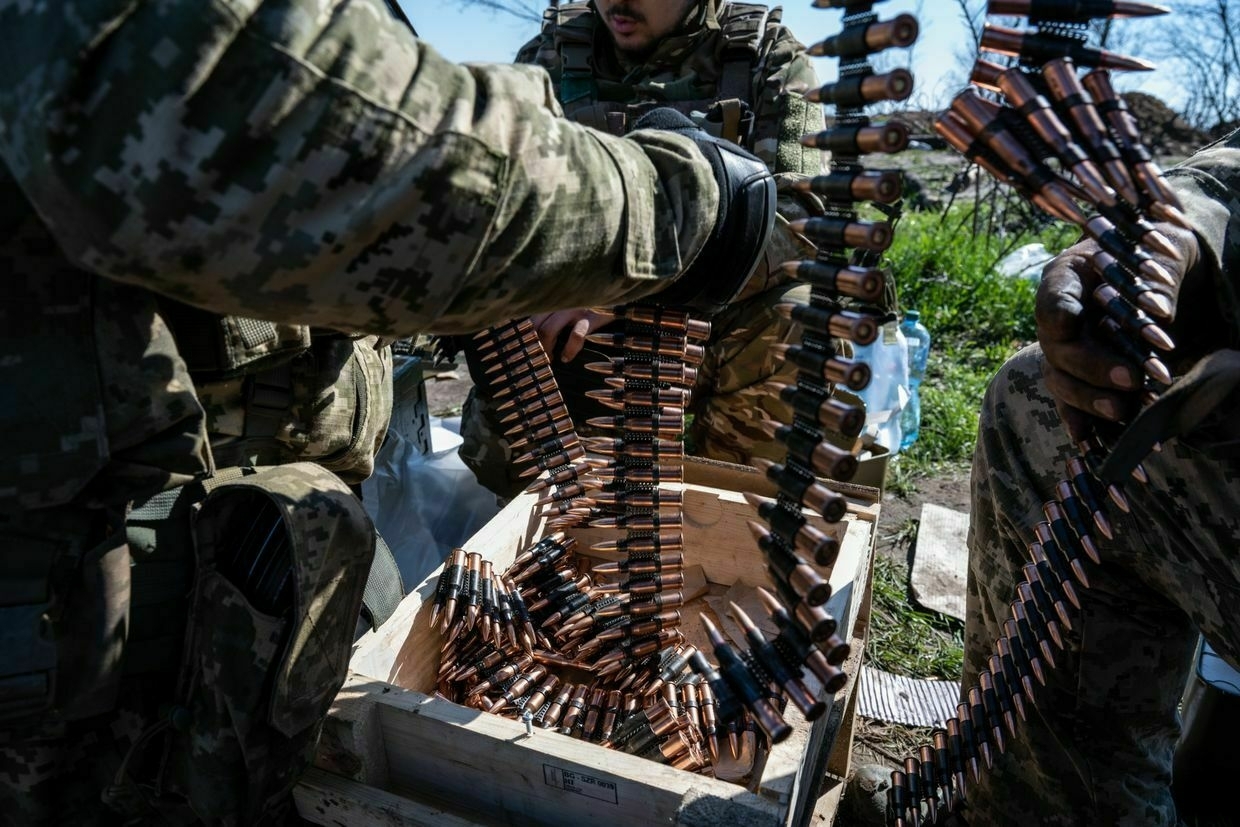
Lithuania has signed a memorandum with American defense firm Northrop Grumman and Norwegian Nammo to secure the production of ammunition amid Russia’s war against Ukraine, the Lithuanian Defense Ministry announced on June 24.
“By strengthening our national defense industry, we are investing in both technological capabilities and Lithuania’s resilience to crises. This Memorandum of Understanding will allow us to better equip our armed forces and help Lithuania become an important link in international supply chains,” Lithuanian Vice Minister of National Defense Loreta Maskalioviene said.
“The investment and expertise of our allies… will significantly contribute to strengthening of the national defense industry and security not only in Lithuania, but also in the entire region, including Ukraine. The development of the defense industry and investment in production must come without delay,” Lithuanian Finance Minister Rimantas Sadzius said.
Russia’s full-scale war against Ukraine has sparked concern in Europe that Russia could attack NATO’s eastern flank, including Poland, the Baltic countries, and Finland.
Ukrainian intelligence has evidence that Russia is preparing new military operations in Europe, President Volodymyr Zelensky said on June 22.
The partnership will be implemented at the state-owned Giraite Armament Factory, the announcement said, adding that the factory is set to be integrated into Northrop Grumman’s international supply chains.
Northrop Grumman will supply ammunition produced in the Lithuanian defense factory to the international market.
Nammo, as a subcontractor, will provide Northrop Grumman with the 35 mm ammunition production technology.
“It will enhance national strategic autonomy in defense and deepen partnerships with NATO allies, the United States, and Norway. The planned production of ammunition is of critical importance to the Lithuanian Armed Forces, our allies, and Ukraine,” Lithuanian Defense Minister Dovile Sakaliene said.
The memorandum will initiate negotiations for the production of medium caliber ammunition, ranging in size from 20-50 mm.
The Giraite Armament Factory will be provided with 35 mm ammunition production technology from the two defense firms, the announcement said.
Sakaliene noted that the new partnership will ensure an uninterrupted supply of ammunition to Lithuania’s Armed Forces.
NATO is holding a summit in The Hague from June 24-25 with world leaders, including Zelensky and U.S. President Donald Trump present.
The White House has confirmed that Trump and Zelensky will hold a meeting at the NATO summit.
‘Like any technology, it’s a race’ — UK’s largest ammo maker rebooting chemistry to break NATO’s dependence on explosive importsRussia’s war in Ukraine has drained Western ammunition stocks. Despite years of claimed weapons ramp-ups, NATO’s arms manufacturing is still not refilling those stocks apace, let alone making it to Ukraine in needed mass. The West has come to recognize that these shortages are due to the offshoringThe Kyiv IndependentKollen Post
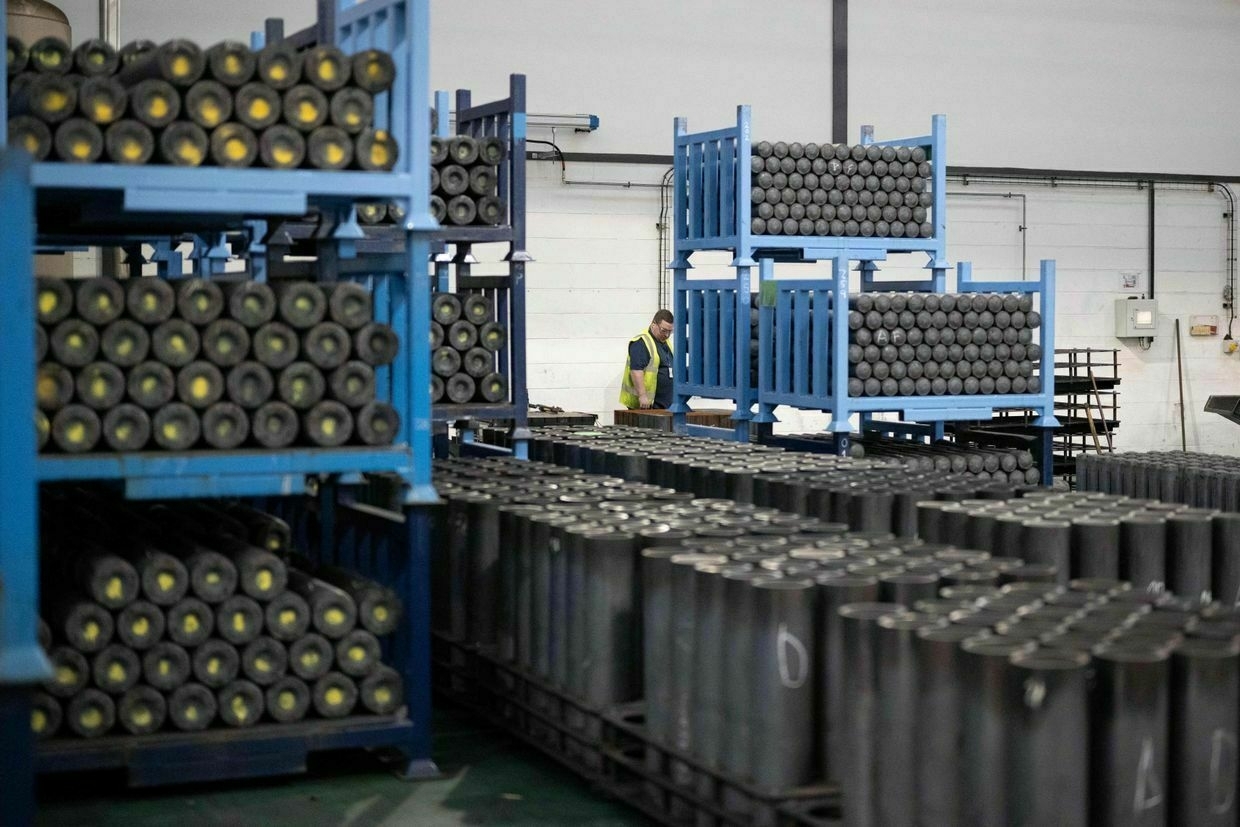
-
Italy commits $1.6 million to boost Ukraine’s battle against landmines
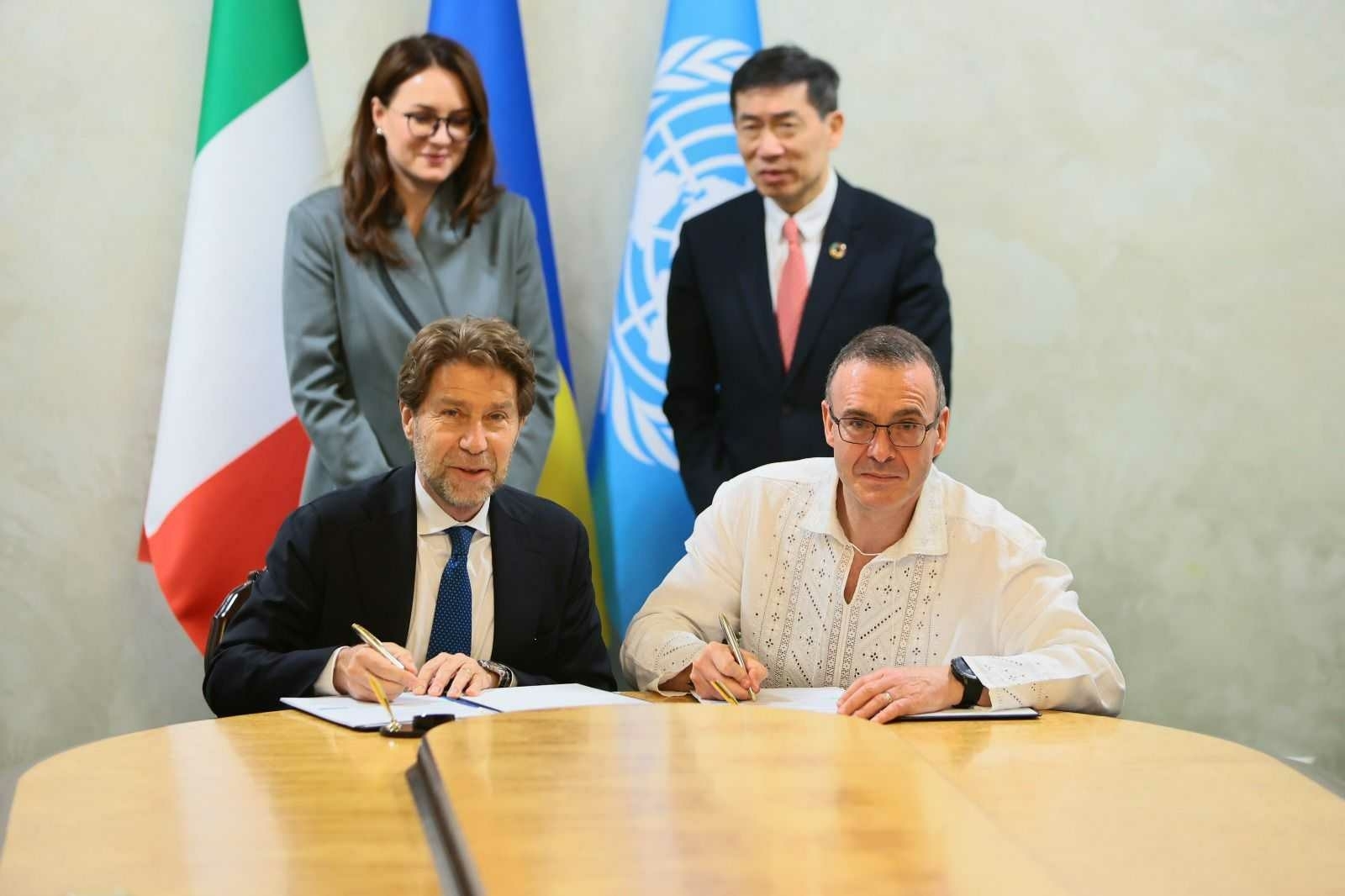
Italy has pledged 1.5 million euros (approximately $1.6 million) to support humanitarian demining efforts in Ukraine, deepening its partnership with the United Nations Development Programme (UNDP) and the Ukrainian government.
The agreement was formalized during a high-level ceremony in Kyiv on June 23 attended by Italian Ambassador Carlo Formosa, UN Assistant Secretary-General and new UNDP Administrator Haoliang Xu, Jaco Cilliers, Resident Representative of the UNDP in Ukraine, and Ukraine’s First Deputy Prime Minister and Economy Minister Yuliia Svyrydenko.
“Demining is not just a technical operation; it is a deeply humanitarian act that combines cooperation and innovation to restore hope in Ukraine,” Ambassador Formosa said. “This project is not only a response to the emergency — it’s a step toward recovery. It’s about returning land to farmers, playgrounds to children, and safe roads to families."
The funding will support UNDP’s mine action program, which focuses on clearing land contaminated by mines and explosive remnants of war, ensuring the safe return of land to Ukrainian communities.
The initiative comes as Ukraine continues to grapple with one of the world’s largest demining challenges. According to the State Emergency Service, the total area of potentially mined land has been reduced by over 20% since late 2022. However, approximately 137,000 square kilometers (52,900 square miles) — much of it farmland — remain contaminated. Demining operations are carried out by the emergency service personnel, National Police, Ministry of Defense, and non-governmental organizations.
Currently, 112 certified demining operators, including eight international groups, are active in Ukraine, the State Emergency Service reported on June 24. Their combined capacity includes more than 9,000 personnel, 278 specialized vehicles, and over 13,000 metal detectors.
While significant progress has been made, Ukrainian officials stress that continued international support and funding are critical to accelerating clearance efforts.
Investigation: How Russia prepares its strategic missile plant for ‘eternal war’Key findings: * Despite international sanctions, Russia’s strategic missile plant was able to import complex machinery to dramatically increase missile production. * The Kyiv Independent has identified the equipment supplied to the plant, as well as the supply chains, mostly from China. * We located the plant’s new premises, built to house theThe Kyiv IndependentAlisa Yurchenko
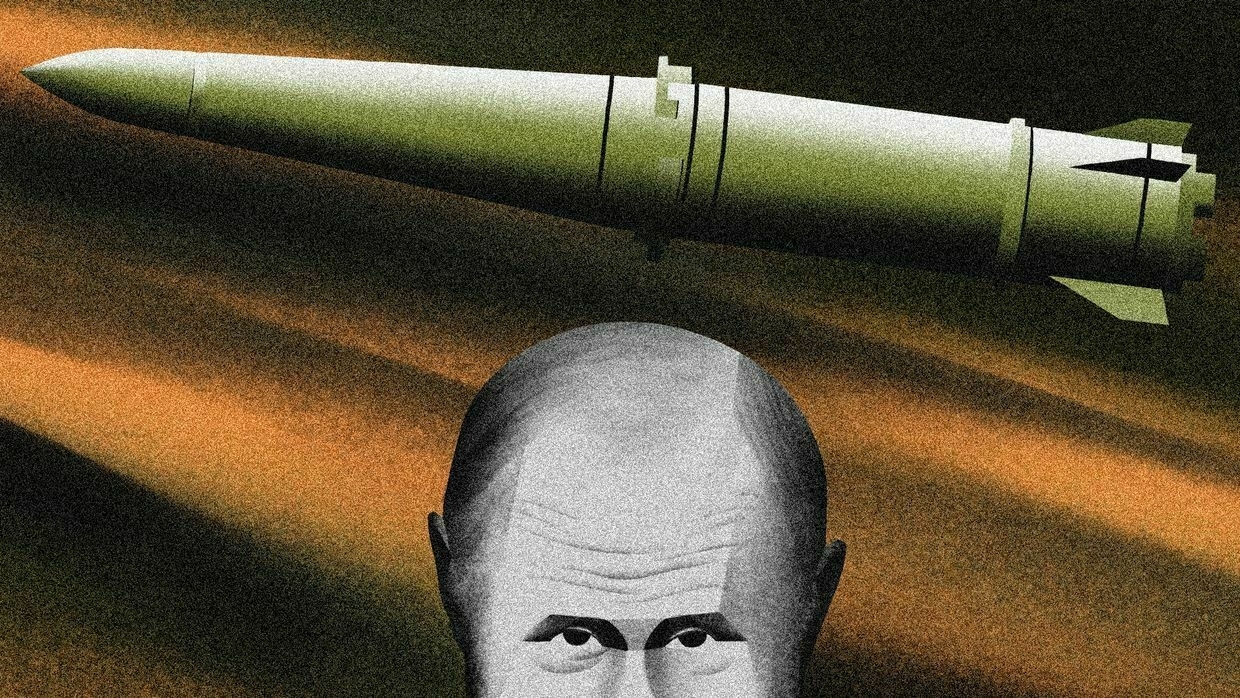
-
Russia has launched over 28,000 Shahed drones at Ukraine since 2022, with nearly 10% fired in June alone, Zelensky says
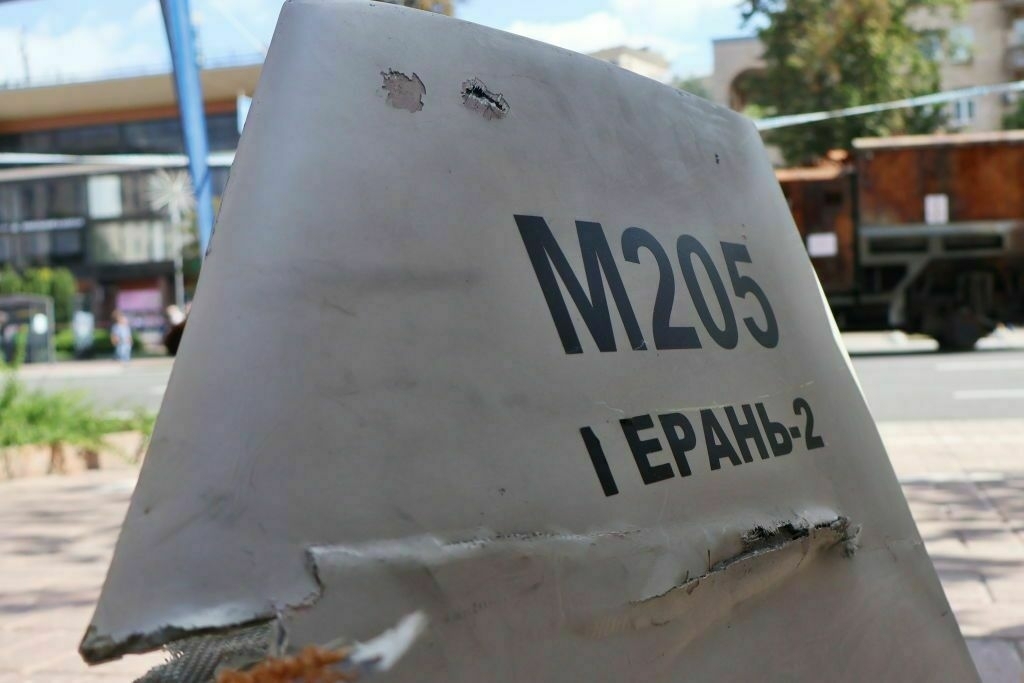
Since the start of Russia’s full-scale invasion, Moscow has launched 28,743 Shahed-type drones at Ukraine — with 2,736, or roughly 9.5%, fired in June 2025 alone, President Volodymyr Zelensky said during a speech to the Dutch Parliament in The Hague.
Speaking on June 24, he stressed that Russia would never have been able to carry out such drone attacks without support from Iran, and Ukraine, in turn, could not have intercepted most of the drones without the help of its international partners.
Zelensky called for accountability and emphasized that rules must apply to all — including the Kremlin: “Putin pretends not to understand the rules that shape the modern world. And here, in The Hague, I want to say this very clearly to him: There is a rule — do not kill. There is a rule — do not treat people like beasts. There is a rule — do not destroy cities and villages. There is a rule — do not sponsor terror. There is a rule — do not steal children. And if you break these rules, you will be held accountable."
According to Zelensky, these principles — though difficult for Russia to grasp — form the foundation of international norms, from the UN Charter to Europe’s shared vision of life.
To achieve lasting peace, Zelensky outlined two key strategic priorities. First, he called for maximum isolation of Russia which includes full political isolation, comprehensive sanctions, and the termination of any cooperation that allows Russia to survive and continue waging war.
“Every loophole that allows them to keep going must be closed. We need a strong 18th EU sanctions package. We need tough, painful sanctions on Russian oil. Every reduction in Russia’s oil revenue helps bring peace closer,” he said.
Investigation: How Russia prepares its strategic missile plant for ‘eternal war’Key findings: * Despite international sanctions, Russia’s strategic missile plant was able to import complex machinery to dramatically increase missile production. * The Kyiv Independent has identified the equipment supplied to the plant, as well as the supply chains, mostly from China. * We located the plant’s new premises, built to house theThe Kyiv IndependentAlisa Yurchenko
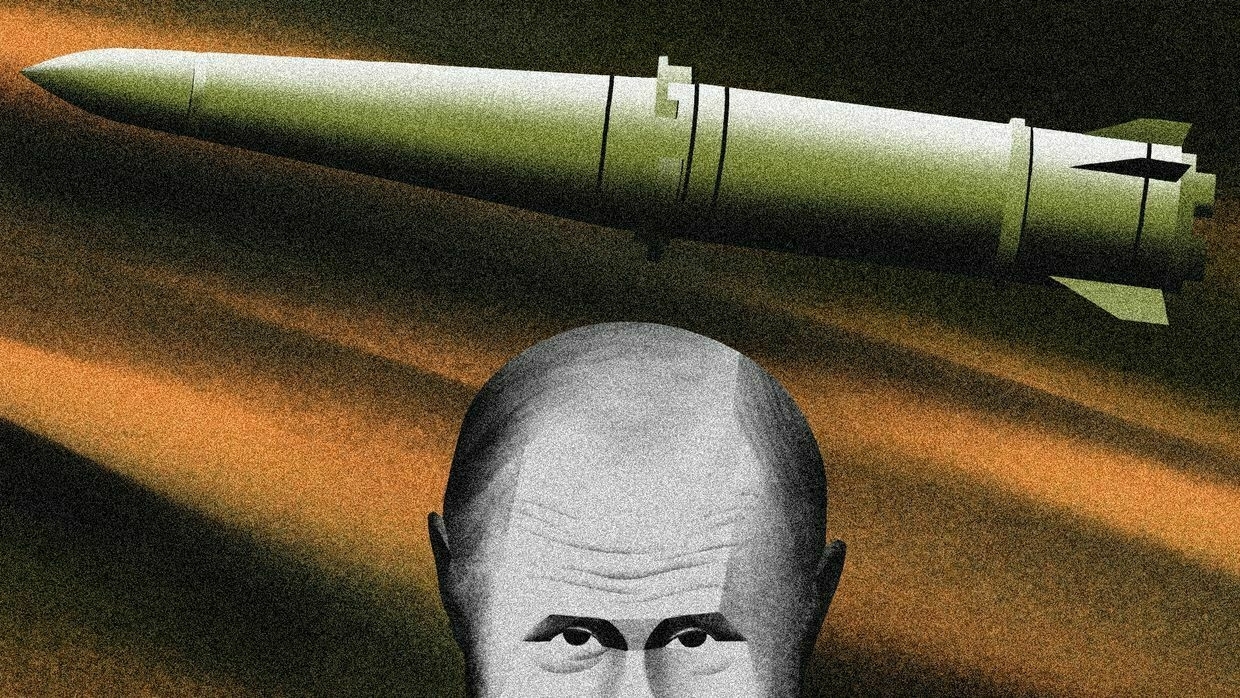
Zelensky argued that the most effective step would be imposing a $30-per-barrel price cap on Russian oil exports.
“The world must reach this threshold — not just to help stop Russia’s war against us, but to prevent any future military operations that Russia might launch against Europe and the Alliance,” he said. “Military plans must become prohibitively expensive for Russia. We must fully block their tanker fleet and cut them off from international banking. That’s what works.”
Second priority, according to Zelensky, is the need for stability in defense support. “Russia must see that Ukraine will not be left alone, and that Europe will not back down.”
-
Strikes didn’t destroy Iran’s nuclear sites, US intel finds, contradicting Trump, CNN reports
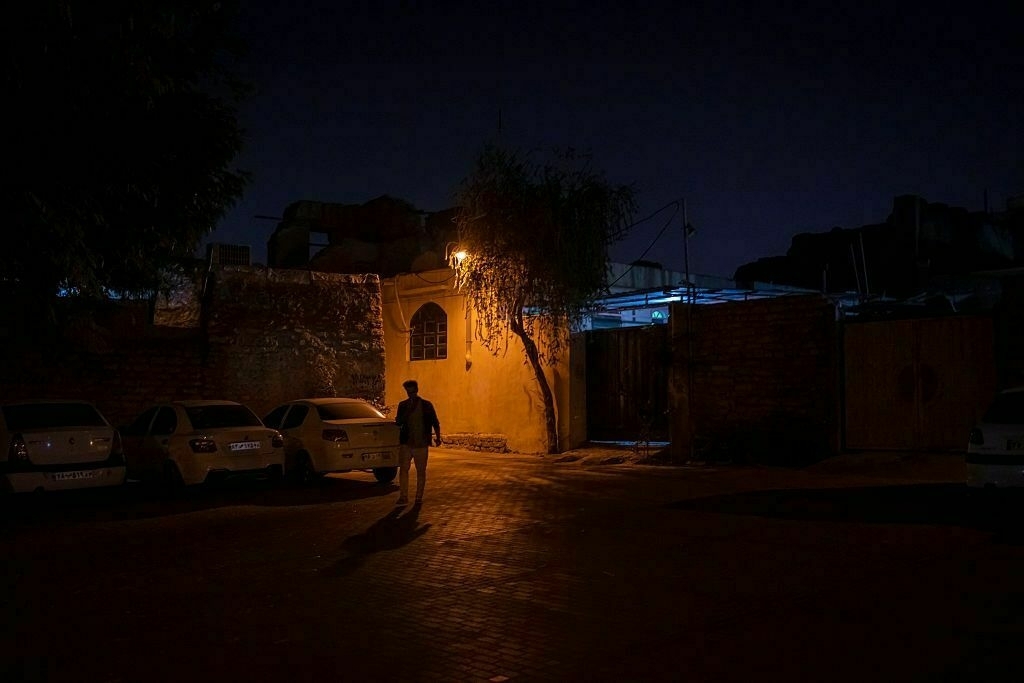
Recent U.S. strikes on three Iranian nuclear facilities did not eliminate the core components of Tehran’s nuclear program and likely delayed it by only a few months, according to an early assessment by the U.S. Defense Intelligence Agency (DIA), CNN reported on June 24, citing four sources familiar with the findings.
The analysis, based on a battle damage report from U.S. Central Command, contradicts public statements by President Donald Trump and Defense Secretary Pete Hegseth, who claimed the operation had “obliterated” Iran’s nuclear capabilities.
“So the (DIA) assessment is that the U.S. set them back maybe a few months, tops,” one source told CNN, adding that Iran’s stockpile of enriched uranium was not destroyed and that most centrifuges remain “intact.”
The White House acknowledged the assessment’s existence but strongly dismissed it. “This alleged assessment is flat-out wrong and was classified as ‘top secret’ but was still leaked to CNN by an anonymous, low-level loser in the intelligence community,” press secretary Karoline Leavitt said. “The leaking of this alleged assessment is a clear attempt to demean President Trump, and discredit the brave fighter pilots who conducted a perfectly executed mission to obliterate Iran’s nuclear program. Everyone knows what happens when you drop fourteen 30,000 pound bombs perfectly on their targets: total obliteration.”
Trump, for his part, stood by his assessment of the mission’s success. “I think it’s been completely demolished,” he said on Tuesday. “Those pilots hit their targets. Those targets were obliterated, and the pilots should be given credit.” Asked if Iran could rebuild, Trump responded: “That place is under rock. That place is demolished.”
While both Trump and Hegseth praised the strikes as decisive, others expressed caution. Chairman of the Joint Chiefs of Staff Dan Caine said it was “way too early” to determine whether Iran retained nuclear capabilities.
Republican Rep. Michael McCaul, former chair of the House Foreign Affairs Committee, also avoided endorsing the president’s characterization. “I’ve been briefed on this plan in the past, and it was never meant to completely destroy the nuclear facilities, but rather cause significant damage,” McCaul told CNN. “But it was always known to be a temporary setback.”
The DIA’s assessment reportedly found that damage at the Fordow, Natanz, and Isfahan sites was mostly limited to aboveground infrastructure, such as power systems and uranium metal processing buildings. The underground facilities—where Iran’s most sensitive nuclear work takes place—were largely unaffected, the sources said.
According to CNN, Israel had been carrying out its own strikes on Iranian nuclear facilities prior to the U.S. operation, but relied on U.S. B-2 bombers equipped with 30,000-pound “bunker buster” bombs to finish the job. Despite over a dozen bombs being dropped on Fordow and Natanz, the sites’ key components remain intact, the sources said.
The U.S. also reportedly used Tomahawk missiles launched from a submarine to target Isfahan, rather than deploying bunker busters. A source said this was due to doubts over whether the bombs could penetrate Isfahan’s deep underground levels, which are believed to be even more fortified than Fordow.
Two sources also told CNN that Iran likely retains undisclosed nuclear facilities that were not targeted and remain operational.
Meanwhile, classified briefings for lawmakers on the strikes were postponed. The all-Senate briefing was rescheduled for Thursday, and the House briefing’s new date remains unclear.
More empty threats from Washington, more deadly bombs from RussiaThe ongoing and escalating slaughter of Ukrainian civilians depends on two preconditions: Moscow’s determination to erase Ukraine, and the tacit permission it receives from America and Europe. On Monday, a Russian missile tore through a residential building in Kyiv, leaving at least six civilians dead and over a dozenThe Kyiv IndependentAndrew Chakhoyan
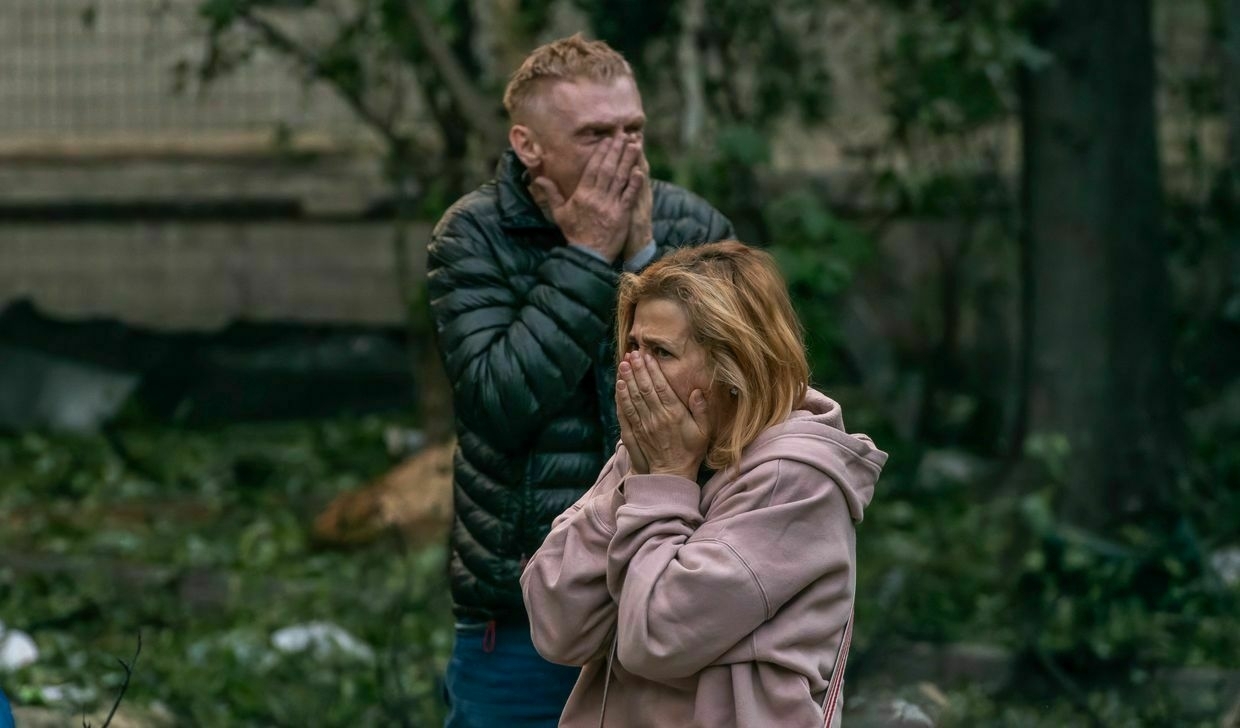
-
Trump casts doubt on NATO defense pledge as alliance confronts Russian threat
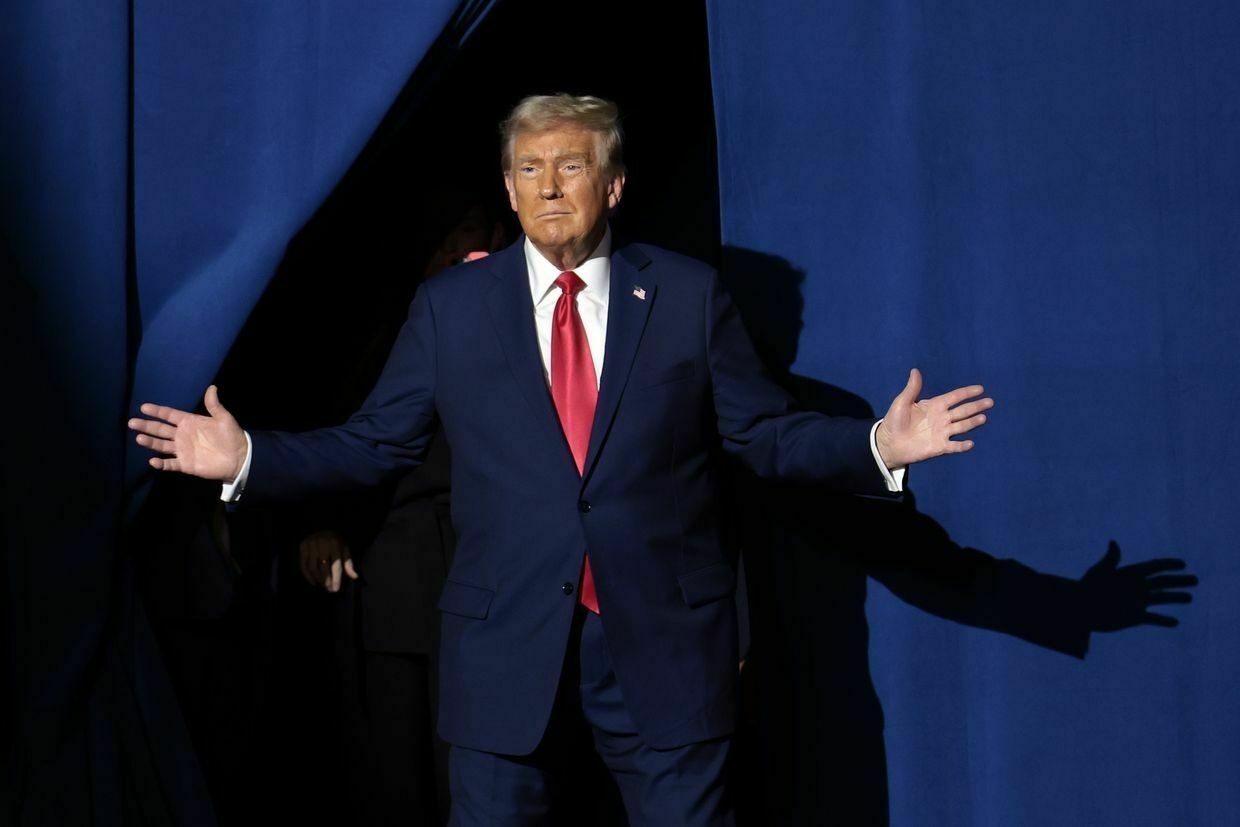
President Donald Trump refused to give a clear commitment to NATO’s Article 5 — the alliance’s collective defense clause — as he departed for a pivotal summit in The Hague, raising fresh concerns about his stance on one of NATO’s core principles.
When pressed by reporters aboard Air Force One on whether he would uphold the mutual defense obligation, Trump replied, “It depends on your definition of Article 5,” adding, “There’s numerous definitions of Article 5. You know that, right? But I’m committed to being their friends, you know, I’ve become friends with many of those leaders, and I’m committed to helping them."
Although Article 5 is central to NATO’s security framework, Trump has previously expressed skepticism about honoring it, often criticizing member states for not contributing enough to shared defense efforts.
Asked to elaborate, he said, “I’m committed to saving lives. I care about life and safety.” He added that he would explain his position in full once at the summit: “I’ll give you an exact definition when I get there — I just don’t want to do it from the back of a plane."
Trump’s remarks come as NATO faces what its leadership describes as its most significant threat in decades.
At a press briefing on June 23, NATO Secretary General Mark Rutte said Russia remains the primary danger to the alliance, citing its growing alignment with China, North Korea, Iran, and Belarus.
“Moscow continues to wage war against Ukraine, with support of North Korea, Iran, and China, as well as Belarus,” Rutte said.
He added that NATO leaders plan to adopt a “historic” defense investment plan at the June 24–25 summit in The Hague, including a new 5% of GDP benchmark for defense spending and stronger backing for Ukraine.
“All leaders will take bold decisions to strengthen our collective defense, making NATO a stronger, fairer, and more lethal alliance,” Rutte said. “This is a leap that is ambitious, historic, and fundamental to securing our future.”
While at the summit, Trump is also set to meet President Volodymyr Zelensky, the White House confirmed on June 24.
Their last meeting was in April at Pope Francis' funeral, amid concerns over the U.S. role in peace talks between Kyiv and Moscow. Details of the June 25 meeting are still being finalized, but the talks are expected in the “early afternoon,” a source told AFP.
Investigation: How Russia prepares its strategic missile plant for ‘eternal war’Key findings: * Despite international sanctions, Russia’s strategic missile plant was able to import complex machinery to dramatically increase missile production. * The Kyiv Independent has identified the equipment supplied to the plant, as well as the supply chains, mostly from China. * We located the plant’s new premises, built to house theThe Kyiv IndependentAlisa Yurchenko
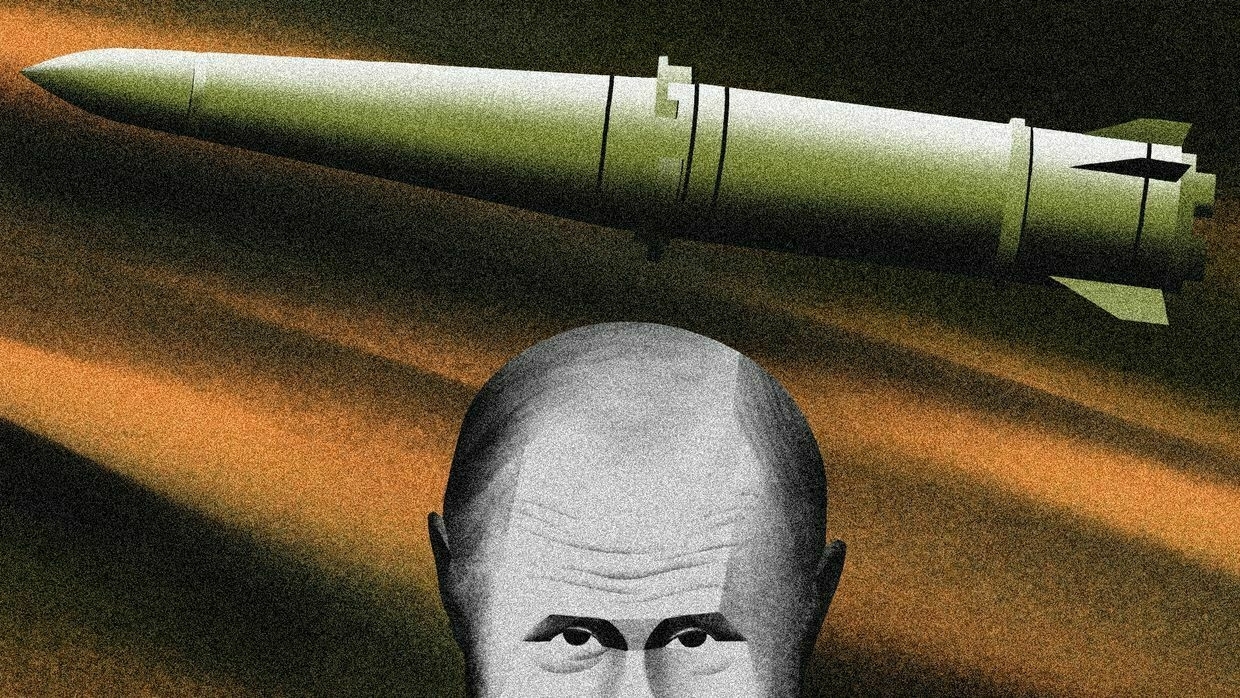
-
Serbia suspends weapons exports amid Russian accusations of arms reaching Ukraine
In a move following accusations from Moscow, Serbia has completely stopped exporting weapons. Serbian President Aleksandar Vučić announced the suspension of arms and ammunition exports, stating that henceforth, defense industry products will be used solely for the country's military needs.
When questioned if Serbia had taken sides in the Israel-Iran conflict by exporting ammunition to Israel, President Vučić asserted that the state has halted all exports, directing military supplies only to its own forces.
"We are not exporting anything now. We've stopped everything, and any further decisions will require special and specific resolutions. We will consider how to proceed in alignment with Serbia's interests. Major government bodies will be informed," Vučić stated.
He further clarified that exports to Israel were previously authorized following the Hamas attacks on October 7, 2023, but noted that the situation has since changed.
"We have essentially stopped everything and are sending it all to our army," the Serbian leader emphasized. Radio Free Europe's Balkan Service reports that following a meeting of the extended General Staff of the Serbian Armed Forces, the Ministry of Defense officially confirmed that the export of weapons and military equipment produced in Serbia is suspended according to the president's directives. The ministry's statement indicates that future arms exports would require approval from both the relevant ministries and the National Security Council.
Vučić's statements come amidst allegations from Russia of Serbian arms being supplied to Ukraine. Russia's Foreign Intelligence Service has claimed that Serbian defense companies continue to supply munitions to Ukraine by using "detours" through NATO countries.
The allegations mostly involve munitions for heavy long-range systems, purportedly sent as complete assembly kits, thus allowing them to be formally designated as manufactured not in Serbia, but at weapons factories in NATO member countries. "Ammunition manufactured by Serbian defense companies, primarily for heavy long-range systems, is sent to serve Ukraine's interests in NATO countries as full assembly kits. This allows Kyiv to subsequently receive it as if it were not Serbian military products but assembled in Western arms factories," the statement claims.
Russia's intelligence service cites transactions between Serbia's "Krušik" factory in Valjevo and the Czech company "Poličske Strojirni," which, according to the claims, purchased large batches of 122-mm rocket assembly kits for the "Grad" system. Additionally, the Serbian company "Eling" in Loznica allegedly supplied the Bulgarian company "EMKO" with similar kits, including 120-mm mortar shells.
Previously, President Aleksandar Vučić indicated that Serbia is prepared to aid in the reconstruction of one or two regions in Ukraine.
-
Russia expands military recruitment to include stateless individuals
Russia has authorized stateless individuals to enlist in its military, aiming to recruit 5,000 new soldiers.
Russia’s State Duma has given its backing to legislation that permits stateless people to join the Russian armed forces under contract. According to The Moscow Times, this development reflects the Kremlin’s ongoing efforts to bolster military ranks for continued operations in Ukraine.
The approved measure amends current laws on military service and defense, equating stateless individuals to foreigners in terms of military enlistment. One of the primary incentives for these recruits is the opportunity to obtain Russian citizenship through a fast-tracked process upon completion of service.
The proposal now advances to the Federation Council for final voting before being signed into law by President Vladimir Putin. If signed, it will take immediate effect.
Kremlin officials anticipate that this new law will draw as many as 5,000 stateless individuals into military ranks.
FSB reports indicate nearly 90,000 stateless individuals have entered Russia since the start of 2024. However, this figure may include repeated entries by the same individuals. Meanwhile, the Russian Ministry of Internal Affairs notes that almost 6 million foreigners and stateless persons have registered for employment, though less than 1% have officially obtained work permits.
-
SUCCESS! The Ukrainian Armed Forces destroyed a Russian S-300V4 and a radar worth $24 million
-
Zelensky highlights funding gaps in Ukraine's defense industry
Ukrainian President Volodymyr Zelensky has highlighted the potential of Ukraine's defense industry, estimating it as a $44 billion sector. However, he pointed out that production is cut by nearly half due to a lack of financial resources. Meanwhile, Russia's missiles reportedly rely heavily on foreign components for their construction.
During his address to participants at the Defense Industry Forum in the Netherlands on June 24, Zelensky emphasized the enduring threat posed by Russia. "We all acknowledge this is a long-term threat, and that threat is Russia. But we're not alone facing it; we're opposing both state and non-state actors supporting this aggression," he stated.
According to Zelensky, this "network" supporting Russia includes countries like North Korea, Iran, and some Chinese companies, as well as "many, many schemers" globally. Ukraine's priorities are clear - co-production of weapons and sanctions against companies collaborating with Russia. Investment and technology have been pinpointed as crucial issues for production. Zelensky expressed that the potential of Ukraine’s defense sector exceeds $44 billion.
"This covers nearly a thousand military assets, from artillery to drones, advanced missile warfare systems, and rockets. But around 40% of this potential lacks adequate funding, and that's a problem," he noted.
Zelensky explained that while Ukraine is capable of producing about 8 million drones of various types annually, financial limitations remain a hurdle. In contrast, Russia leverages its oil revenues and resources from Iran and North Korea, alongside corrupt dealings with other countries.
"Our collective solidarity is the best response to Russia's military network," Zelensky asserted.
He urged partners to boost investment in joint weapon production with Ukraine, assuring that all arms produced by Ukrainians will contribute to Europe's security framework.
Zelensky reiterated that there is no indication that Russian President Vladimir Putin intends to halt the conflict. Russia consistently dismisses peaceful propositions, including those from the US. Ukrainian intelligence has also confirmed Russia's plans for new military operations on NATO territory. The Ukrainian leader called on European nations to increase their defense budgets.
"It's better to curb Russia where the war began," he emphasized.
Additionally, Zelensky mentioned that no remarkable Russian weapon is produced without materials or components from foreign origins. These foreign parts are present in every missile and most drones used by Russian forces.
Reminder: President Volodymyr Zelensky has acknowledged being fatigued by the war in Ukraine and expressed that he is “always ready” to cede power if the nation wishes for a change.
-
Kyiv, Copenhagen aim to launch Ukrainian defense production in Denmark
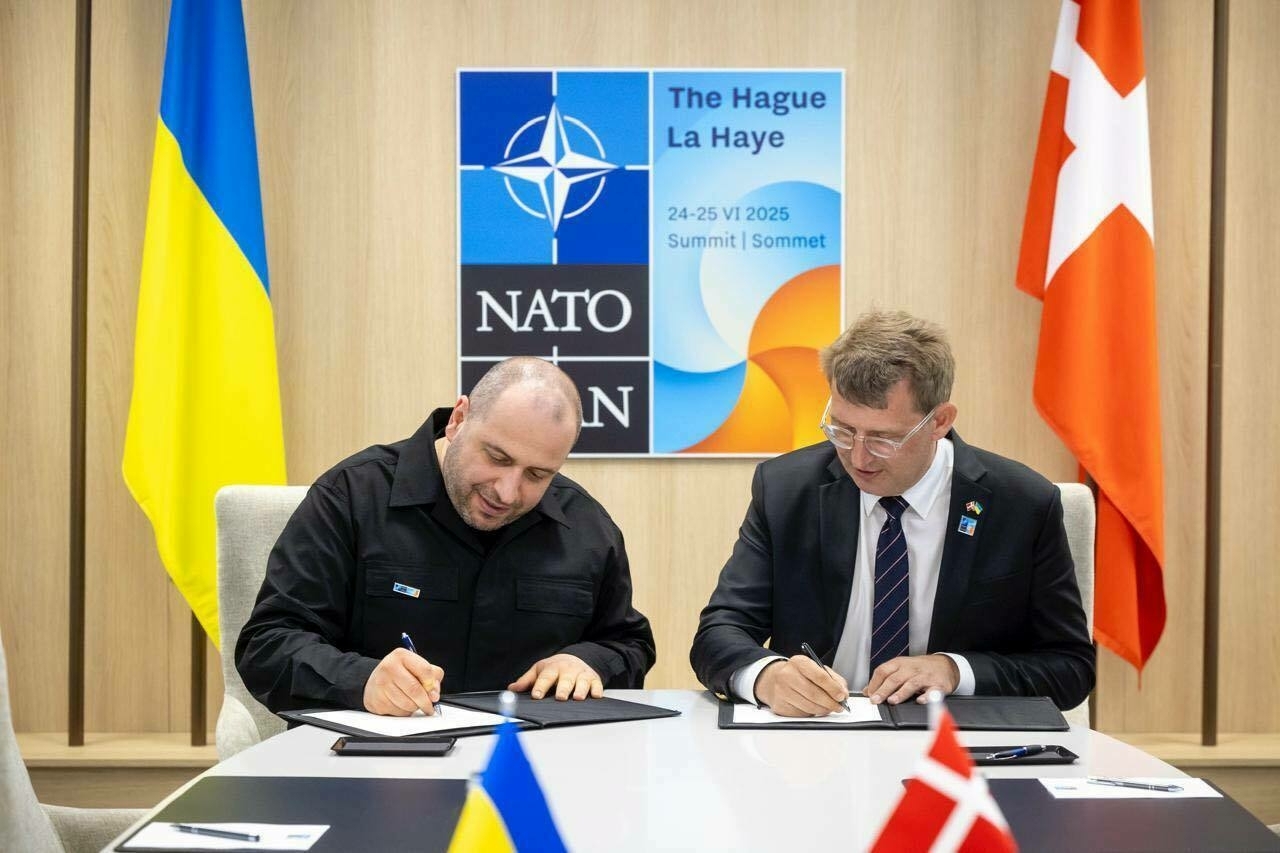
Defense Minister Rustem Umerov signed a Letter of Intent on June 24 with his Danish counterpart Troels Lund Poulsen to launch Ukrainian defense production in Denmark, Umerov announced on Facebook.
The document envisages facilitating the deployment of Ukrainian defense companies in Denmark and integrating of the defense industries of both countries through the “Build with Ukraine” initiative.
Denmark has already allocated $47 million for the project, and Ukraine’s partners will provide further funding for production.
“I thank the Danish government for its trust, steadfast support of Ukraine, and commitment to developing a deep partnership between our countries,” Umerov said. “This partnership enhances the security of Ukraine, Denmark, and all of Europe — today and into the future."
The agreement between Ukraine and Denmark also provides coordination between the Danish Defense Ministry, the Business and Industry Ministry, and the Foreign Ministry to integrate Ukrainian enterprises into the European defense system.
“By providing Ukrainian defense companies the opportunity to start production in Denmark, we are creating a basis for close cooperation between defense companies in both countries. This will also provide the Danish Armed Forces with access to the latest technologies and the experience of Ukraine,” Poulsen said.
Denmark has pioneered efforts to support Ukraine by investing in its defense industry, creating the so-called “Danish model” of purchasing arms for Kyiv from Ukrainian producers. Copenhagen has provided around $9.8 billion in military aid under its Ukraine Fund for the years 2023-2028.
‘Like any technology, it’s a race’ — UK’s largest ammo maker rebooting chemistry to break NATO’s dependence on explosive importsRussia’s war in Ukraine has drained Western ammunition stocks. Despite years of claimed weapons ramp-ups, NATO’s arms manufacturing is still not refilling those stocks apace, let alone making it to Ukraine in needed mass. The West has come to recognize that these shortages are due to the offshoringThe Kyiv IndependentKollen Post
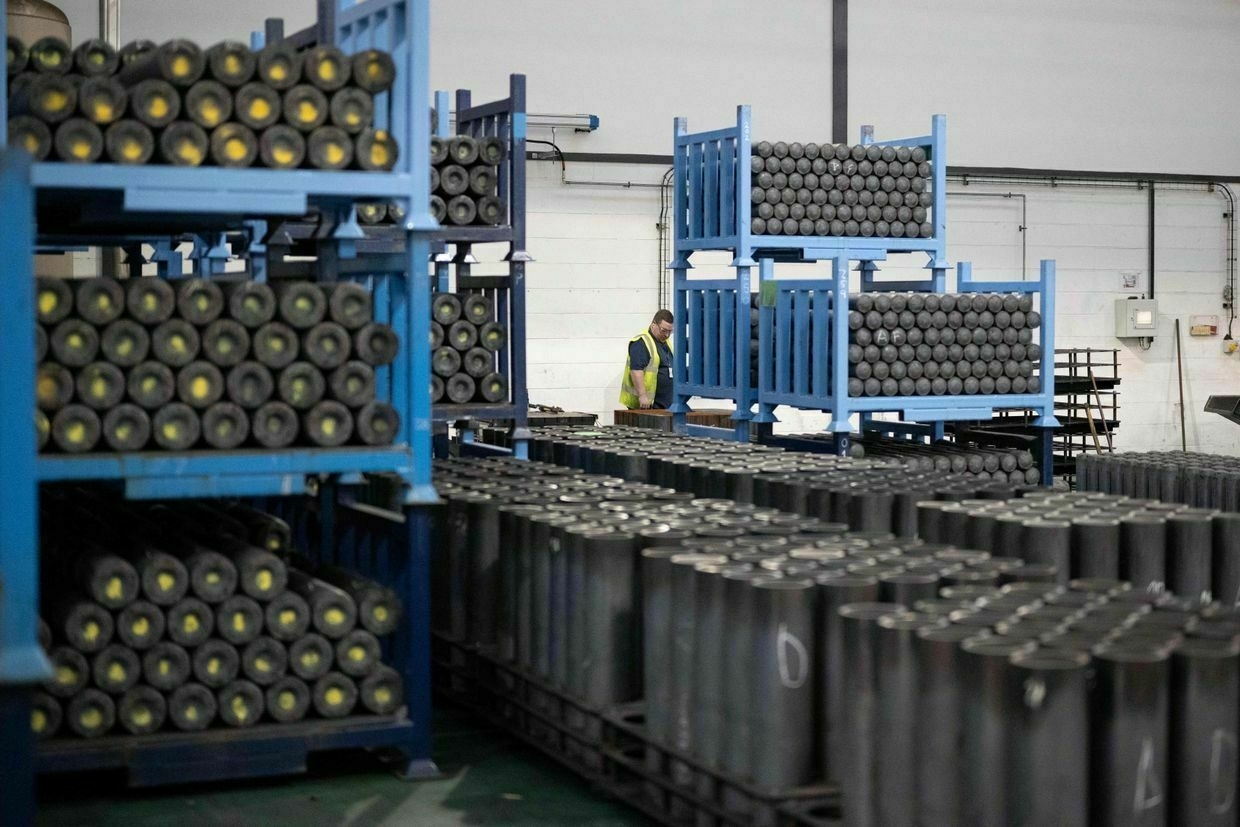
-
Naftogaz seeks $1.37 billion from Russia’s Gazprom following arbitration victory
Ukraine’s national oil and gas company Naftogaz has submitted a payment demand to Russia's Gazprom, claiming $1.37 billion in line with a final arbitration decision from Zurich, dated June 20, 2025, as announced by Naftogaz's press service on Tuesday, June 24. The Ukrainian energy company states that the figure covers the principal debt for gas transit services under a 2019 agreement, penalty fees, and legal expenses incurred by Naftogaz.
"If Gazprom declines to comply with the decision voluntarily, Naftogaz will launch a strategy to forcibly recover assets from the Russian company," the statement says.
The arbitration centered on Gazprom's cessation of gas transit payments in May 2022, breaching contractual obligations based on "take or pay" principles. Naftogaz initiated arbitration in September 2022, which Gazprom attempted to block through Russian courts. Eventually, a tribunal consisting of arbitrators from Sweden, Switzerland, and Israel ruled in favor of Naftogaz.
Simultaneously, Naftogaz continues enforcing an arbitration ruling for Russia to pay $5 billion for the unlawful expropriation of assets in Crimea in 2014, according to Naftogaz's press service.
"The enforcement process is ongoing in ten jurisdictions at various stages. Finland and France have already seen initial results with Russian assets being seized. Work continues in other nations, but further details are not disclosed due to legal strategy considerations," Naftogaz reports.
-
Ukraine war latest: Russian attack on Dnipro kills at least 17, injures almost 280
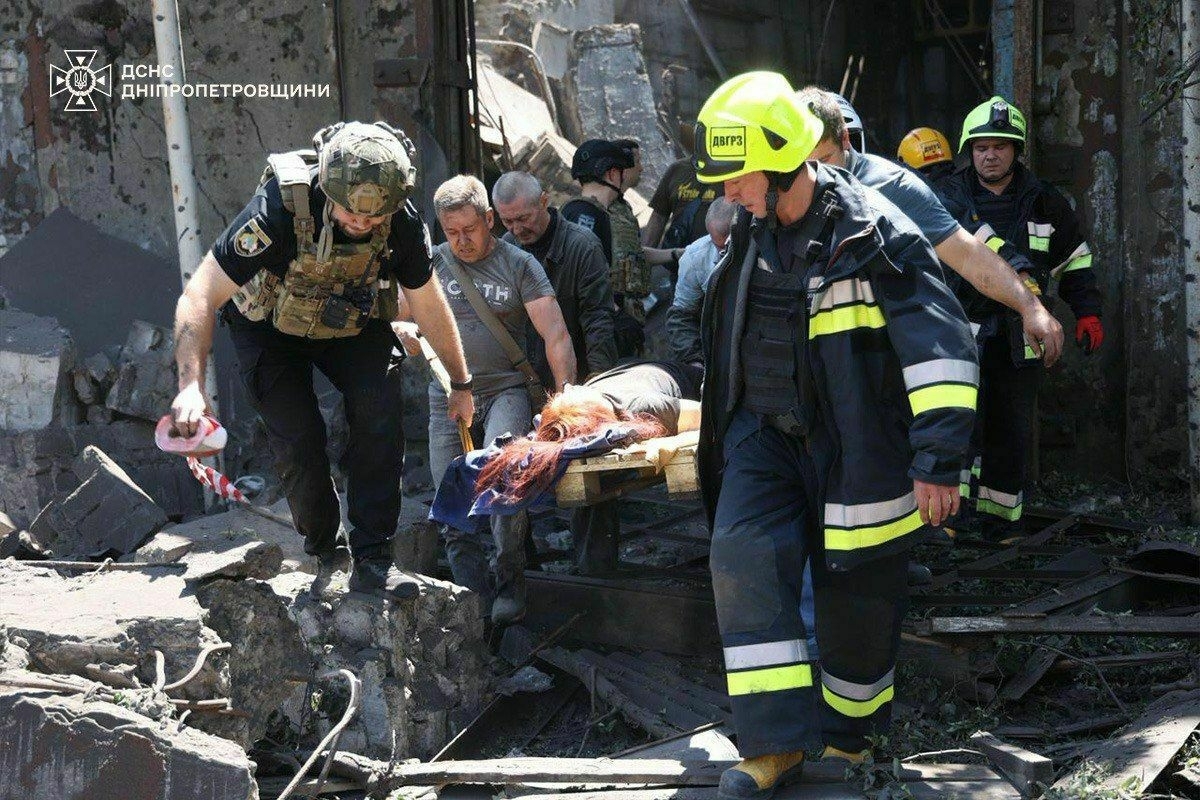
Key developments on June 24:
- ‘Dead and wounded everywhere’ — Russian attack on Dnipro kills at least 17, injures almost 280
- Council of Europe, Ukraine to sign accord on June 25 to set up Russian aggression tribunal
- Ukraine can produce 8 million drones annually but needs funding, Zelensky says at NATO summit
- Trump to meet Zelensky during NATO summit, White House confirms
- UK to fund joint drone production with Ukraine
Russia launched a deadly missile attack on the Ukrainian city of Dnipro on June 24, striking civilian infrastructure and a passenger train, killing at least 17 people and injuring scores of others, local officials reported.
Dnipropetrovsk Oblast Governor Serhii Lysak said the morning strike ignited a large fire and also damaged a dormitory, a gymnasium, and an administrative building in the city.
The Russian military also struck the nearby town of Samarske, Lysak said. Casualties were reported in both locations.
“Unfortunately, there are dead and wounded everywhere,” he said.
In Samarske, two people were killed, and 14 injured. Eight were hospitalized, with half of them in critical condition.
“As of now, more than 160 people are known to have been injured. Unfortunately, 11 people have died,” President Volodymyr Zelensky said in a post on social media, adding: “The rubble is still being cleared, so the death toll may, unfortunately, increase."
Around 8:30 p.m. local time, the death toll rose to 17, while the number of wounded increased to 279, including 27 children, Lysak reported.
Almost a hundred of the victims remain in hospital, according to Lysak.
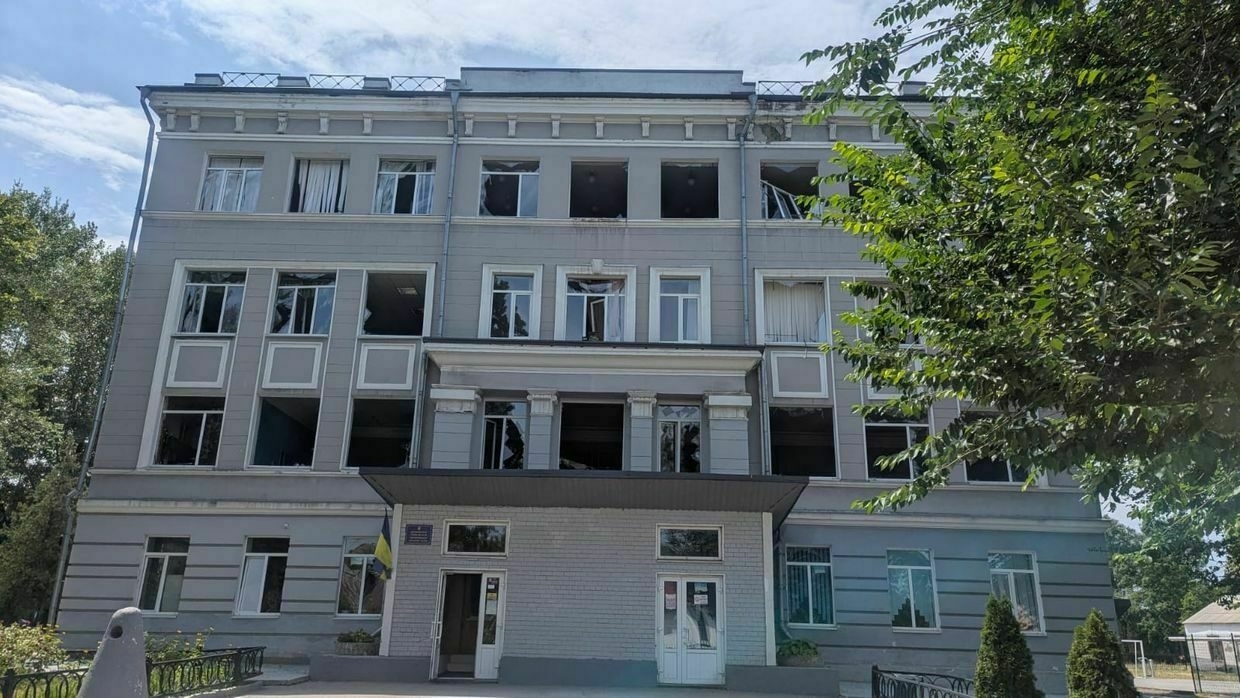
An school in Dnipro that was damaged in Russia’s ballistic missile attack on June 24, 2025. (Dnipro.media) 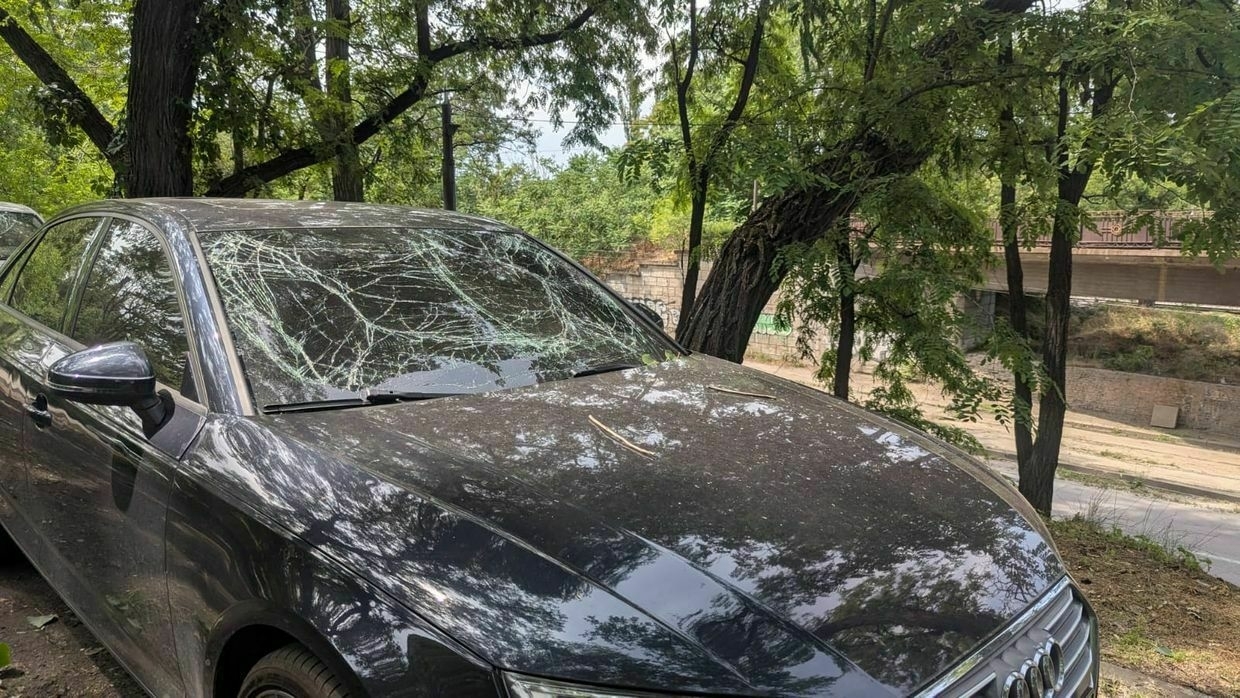
Multiple cars got damaged in Dnipro during Russia’s ballistic missile attack on June 24, 2025. (Dnipro.media) 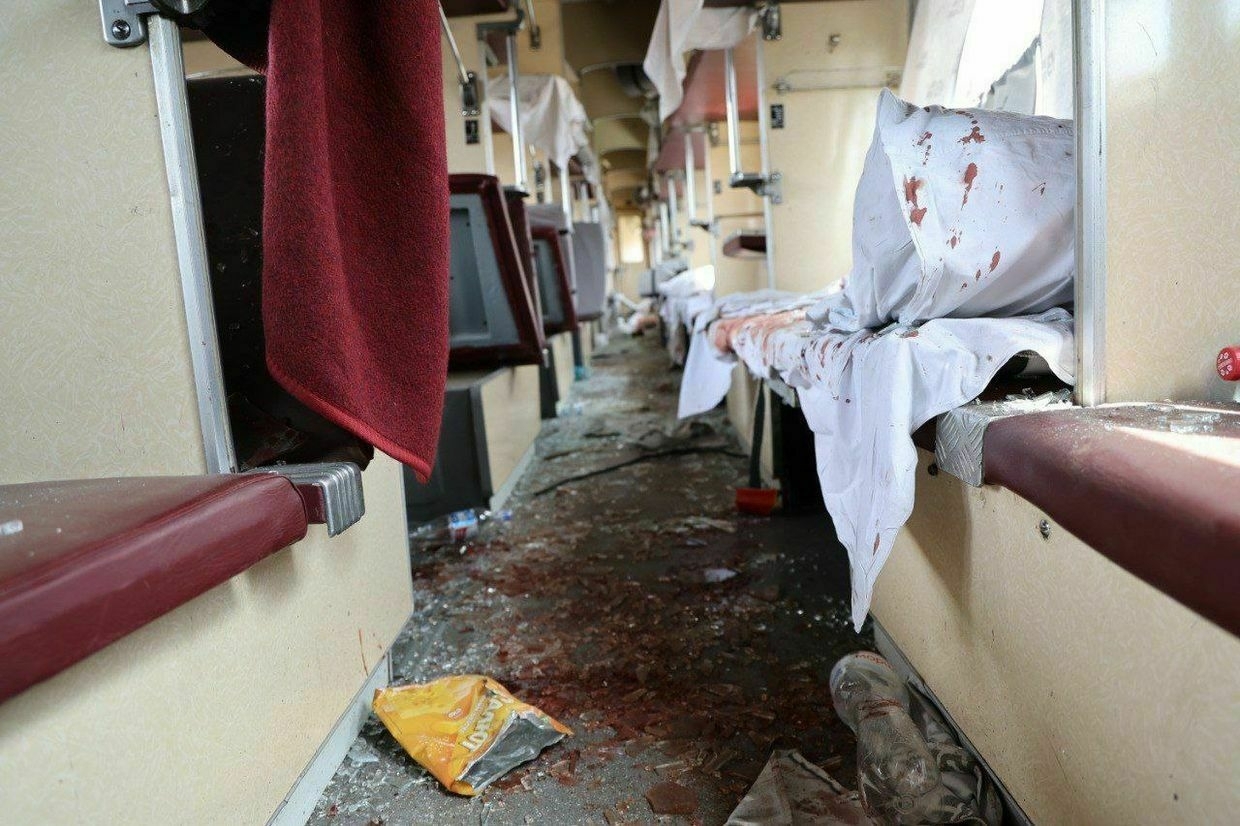
The aftermath of a Russian ballistic missile attack Dnipro on June 24, 2025, that damaged a passenger train (Serhii Lysak/Telegram). Ukraine’s national railway company, Ukrzaliznytsia, said that a train traveling from Odesa to Zaporizhzhia was damaged in the attack.
“Ukrzaliznytsia is preparing a replacement train in Dnipro to evacuate passengers to Zaporizhzhia,” the company said in a statement.
In an update, Ukrzaliznytsia said no passengers or railway workers were killed in the attack, though several people sustained injuries and are receiving medical care.
The attack came as NATO leaders convened for a high-level summit in The Hague. NATO Secretary General Mark Rutte warned on June 23 that Russia remains the alliance’s most immediate and long-term threat.
Investigation: How Russia prepares its strategic missile plant for ‘eternal war’Key findings: * Despite international sanctions, Russia’s strategic missile plant was able to import complex machinery to dramatically increase missile production. * The Kyiv Independent has identified the equipment supplied to the plant, as well as the supply chains, mostly from China. * We located the plant’s new premises, built to house theThe Kyiv IndependentAlisa Yurchenko
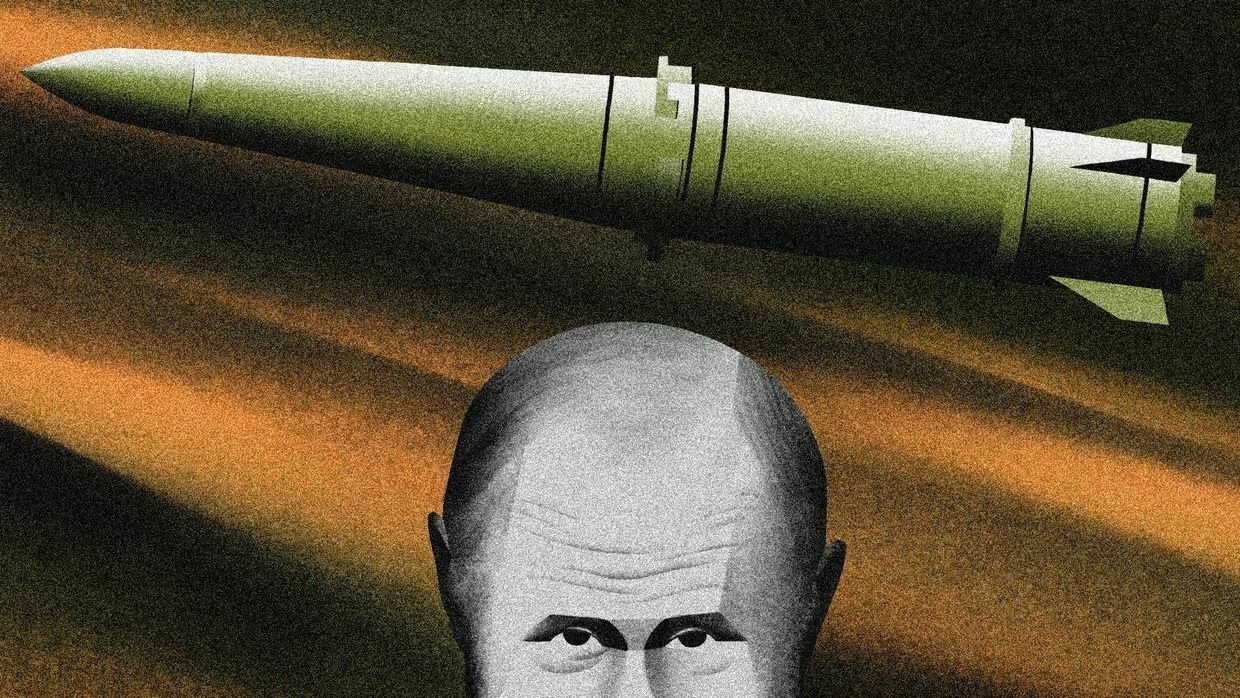
Council of Europe, Ukraine to sign accord on June 25 to set up Russian aggression tribunalThe Council of Europe and Ukraine will sign an agreement on June 25 to set up a special tribunal for the crime of Russian aggression, Yevheniya Kravchuk, a member of Ukraine’s delegation to the Parliamentary Assembly of the Council of Europe (PACE), said on June 24.
The move marks a milestone in international efforts to hold President Vladimir Putin and other top Russian officials accountable for launching the full-scale war against Ukraine.
“What seemed like a dream of justice will soon become a reality. Ukraine, together with the Council of Europe, will sign an agreement that will bring Russia to justice,” Kravchuk wrote on Facebook.
Ukrainian Deputy Prime Minister Olha Stefanishyna stressed that the special tribunal will have jurisdiction over the Russian president, prime minister, foreign minister, and other top officials.
"It is not a matter of debate anymore, only a matter of time. Some will get into the hands of justice sooner, some later, but they will all be held accountable. There are no exceptions," Stefanishyna told the Kyiv Independent. "It's critical to restore the international rule of law and prevent future acts of aggression."
The tribunal's jurisdiction covers all aspects of the crime of aggression, including the planning, preparation, initiation, or execution of acts of aggression, according to Stefanishyna.
"The tribunal's design makes it clear that the official status of the accused at the time of the crime does not exempt them from responsibility," she said. "Functional immunity does not apply here; high-ranking officials can be prosecuted even while holding office. The statute provides rules for conducting proceedings if the accused is absent."
The tribunal will be authorized to cooperate with the International Criminal Court (ICC) to ensure jurisdictional effectiveness and share information, Stefanishyna added.
President Volodymyr Zelensky has long advocated for the tribunal to ensure that Putin and other senior Russian officials face justice for launching the invasion three years ago.
Ukrainian prosecutors have documented thousands of war crimes committed by Russian forces, including attacks on civilians, cultural and medical sites, and acts of torture and deportation.
While war crimes, crimes against humanity, and genocide can be prosecuted against individuals at any level, the crime of aggression applies exclusively to state leaders responsible for planning and waging a war.
The ICC has already issued arrest warrants for Putin and Maria Lvova-Belova, the Russian official overseeing the forced deportation of Ukrainian children to Russia.
Ukraine can produce 8 million drones annually but needs funding, Zelensky saysPresident Volodymyr Zelensky said during NATO summit on June 24 that Ukraine has the capacity to produce over 8 million drones of various types each year, but lacks the financial backing to reach that potential, a shortfall he said must be urgently addressed to defeat Russia's growing military network.
"Our defense production potential has surpassed $35 billion," Zelensky said during a speech at the NATO Defense Industry Forum in The Hague. "This includes nearly 1,000 types of products... but around 40% of this potential lacks proper funding. For example, we can produce over 8 million drones of different types each year, but the financing allows for far fewer."
Zelensky urged allies to scale up investments in joint weapons production, including drone technologies, artillery, and interceptors. He argued that Ukraine's defense capabilities are not only key to defending its own territory, but essential to strengthening NATO's long-term security.
"We must lead in the drone race, both in strike drones and interceptors," he said. "Please increase your investments in Ukraine and joint weapons production. All the weapons we produce become part of a new, stronger European defense and security system."
The Ukrainian president emphasized that Russia is not acting alone, but as part of a broader network of state and non-state actors, including North Korea, Iran, and Chinese companies, which support its war effort against Ukraine and pose a long-term threat to Europe.
More empty threats from Washington, more deadly bombs from RussiaThe ongoing and escalating slaughter of Ukrainian civilians depends on two preconditions: Moscow’s determination to erase Ukraine, and the tacit permission it receives from America and Europe. On Monday, a Russian missile tore through a residential building in Kyiv, leaving at least six civilians dead and over a dozenThe Kyiv IndependentAndrew Chakhoyan
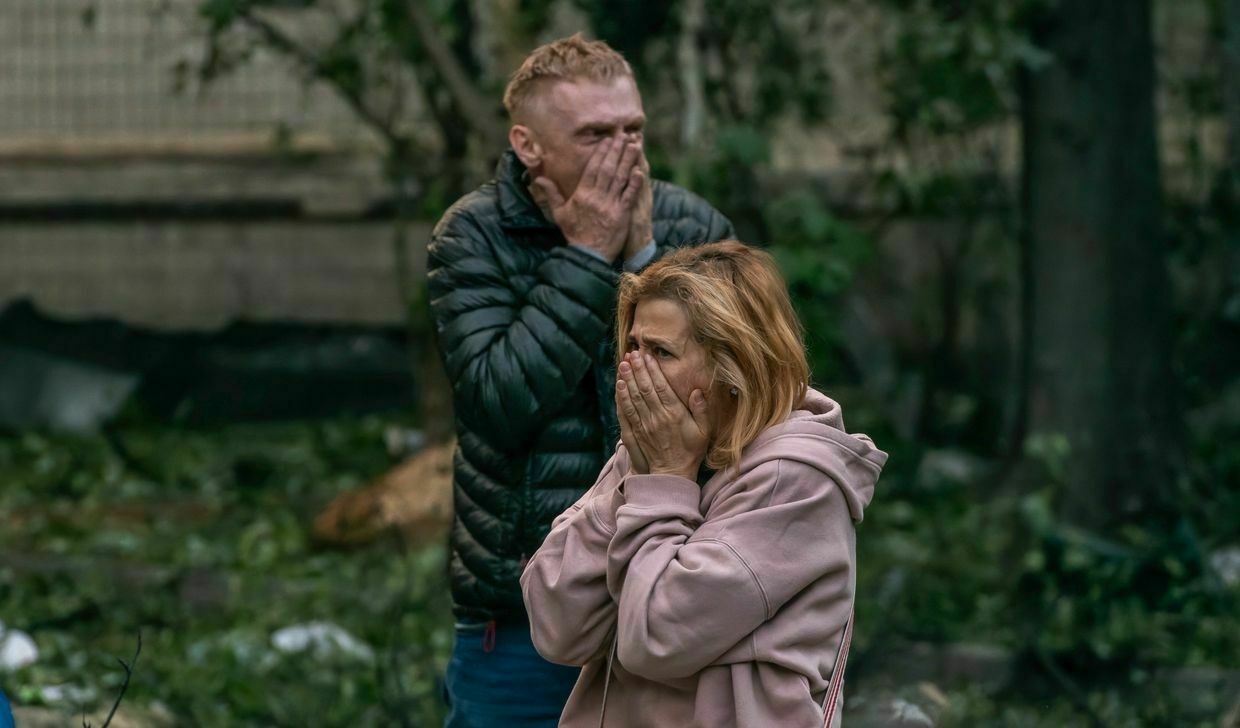
"The source of this war and the long-term threat to Europe is Russia," Zelensky said. "But in reality, we are not just facing Russia alone. We are facing a network of state and non-state actors."
Zelensky also called on NATO members to increase defense spending to 5% of GDP and to dedicate at least 0.25% of GDP to support Ukraine's military needs directly. He thanked countries such as Germany, Norway, Sweden, and the Netherlands for their elevated commitments, but urged others to follow suit.
Zelensky warned that Russia is planning "new military operations on NATO territory" and that the war in Ukraine must be stopped now to prevent broader European conflict.
"There are no signs that Putin wants to stop this war," Zelensky said. "So long as he kills, he lives. And our intelligence confirms this."
He also appealed for a crackdown on the supply chains that allow Russia to sustain its weapons manufacturing, referring to Western-origin components found in Russian missiles, drones, and armored vehicles.
"It's not just China, also Taiwan. Some of these parts come from European countries and from the United States," Zelensky said. "Every single tool delivered to Russia's defense sector helps prolong the war and is a crime against peace."
Zelensky's speech comes as NATO leaders gather in The Hague for a high-level summit on June 24-25. NATO leaders are expected to discuss raising the alliance's defensespending target to 5% of the GDP, a proposal the U.S. has championed but from which it considers itself exempt.
Amid relentless Russian strikes, Ukraine’s businesses rebuild aloneIt took firefighters two days to extinguish the flames at Oleksiy Tarnopolskiy’s warehouse in Kyiv after a Russian attack on June 10. Nothing inside could be saved from his tea and coffee business. Tarnopolskiy arrived on site to an “apocalyptic” scene at 5 a.m., one hour after a RussianThe Kyiv IndependentDominic Culverwell
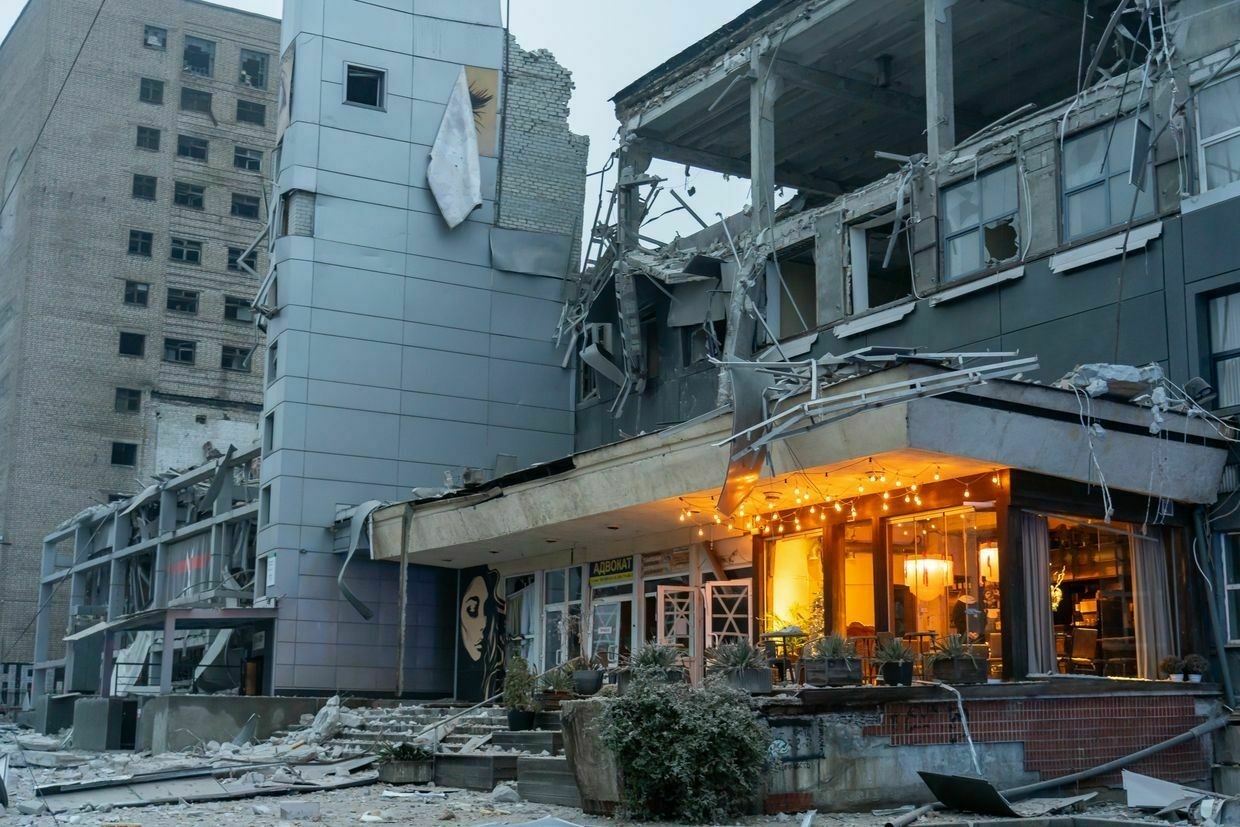
Trump to meet Zelensky during NATO summit, White House confirmsU.S. President Donald Trump will meet his Ukrainian counterpart Volodymyr Zelensky during a NATO summit in The Hague, the White House confirmed on June 24.
The last time Zelensky and Trump met was in April on the sidelines of Pope Francis' funeral amid concerns that Washington would withdraw from mediating peace talks between Kyiv and Moscow.
The White House did not provide any further details about the meeting between the two leaders.
The talks between Zelensky and Trump were scheduled for the "early afternoon" on June 25, the source told AFP, adding that "the teams are finalizing the details" of the meeting.
Trump and Zelensky are expected to discuss Ukraine's "purchase of a defense package, a large part of which consists of air defense systems," according to the source.
The discussion will also focus on "sanctions against Russia, and a price cap on oil," the source added.
Earlier, Trump said that he "would probably meet" Zelensky in The Hague after the two presidents did not manage to talk during the G7 summit in Canada earlier in June, AFP reported on June 24.
When asked what he would say to Zelensky, Trump replied: "I'll say: 'How are you?' He's (Zelensky) in a tough spot, he shouldn't have been there at all".
Zelensky also said in an interview with Sky News that he planned to meet Trump in The Hague. Asked whether the meeting would be a formal discussion or an informal encounter, Zelensky said it was a matter of scheduling: "They are talking about timing. It's timing."
Zelensky expressed hope that Trump's approach to Russia is tactical, intended to pressure Putin into peace negotiations. "I would like this approach to be only a way to force Putin to the negotiating table and to end the war. And let us hope so," he said.
Zelensky was scheduled to meet Trump at the Group of Seven (G7) summit, held June 15-17. However, the U.S. president left the multilateral event early due to the renewed conflict between Israel and Iran.
Zelensky also left the summit early, citing Russia's mass drone and missile attack on Kyiv.
UK to fund joint drone production with UkraineUkraine and the United Kingdom have reached an agreement to jointly produce drones, Defense Minister Rustem Umerov announced on June 24.
Britain will finance the procurement of Ukrainian-designed drones manufactured in the UK, he added.
The deal comes as Ukraine has rapidly developed its drone capabilities since 2022, evolving from modifying commercial aircraft to producing military UAVs, attack drones, and reconnaissance systems at scale.
The agreement was reached between President Volodymyr Zelensky and British Prime Minister Keir Starmer, Umerov said.
Under the three-year program, the UK will finance the procurement of a wide range of Ukrainian drones to be produced by British defense companies.
"This will enable British defense companies to rapidly design and produce state-of-the-art drones on a large scale," Umerov wrote on Facebook.
According to Umerov, all production will be directed to meet the needs of Ukraine's Defense Forces. After the war ends, the UK and Ukraine will share the produced drones between themselves.
The initiative will support the scaling of advanced technologies, increased drone production, and the integration of Ukrainian and British defense industries, Ukraine's defense minister wrote.
Ukraine has ramped up domestic drone production over the recent years of its war with Russia, as well as the development of new missiles.
Various aerial, naval, and ground drones have been developed and often successfully used for reconnaissance, combat, and other tasks throughout the full-scale war with Russia.
In January 2025, Umerov announced that the United Kingdom would finance the production of air defense systems and long-range weapons in Ukraine.
Note from the author:
Ukraine War Latest is put together by the Kyiv Independent news desk team, who keep you informed 24 hours a day, seven days a week. If you value our work and want to ensure we have the resources to continue, join the Kyiv Independent community.
‘Like any technology, it’s a race’ — UK’s largest ammo maker rebooting chemistry to break NATO’s dependence on explosive importsRussia’s war in Ukraine has drained Western ammunition stocks. Despite years of claimed weapons ramp-ups, NATO’s arms manufacturing is still not refilling those stocks apace, let alone making it to Ukraine in needed mass. The West has come to recognize that these shortages are due to the offshoringThe Kyiv IndependentKollen Post
